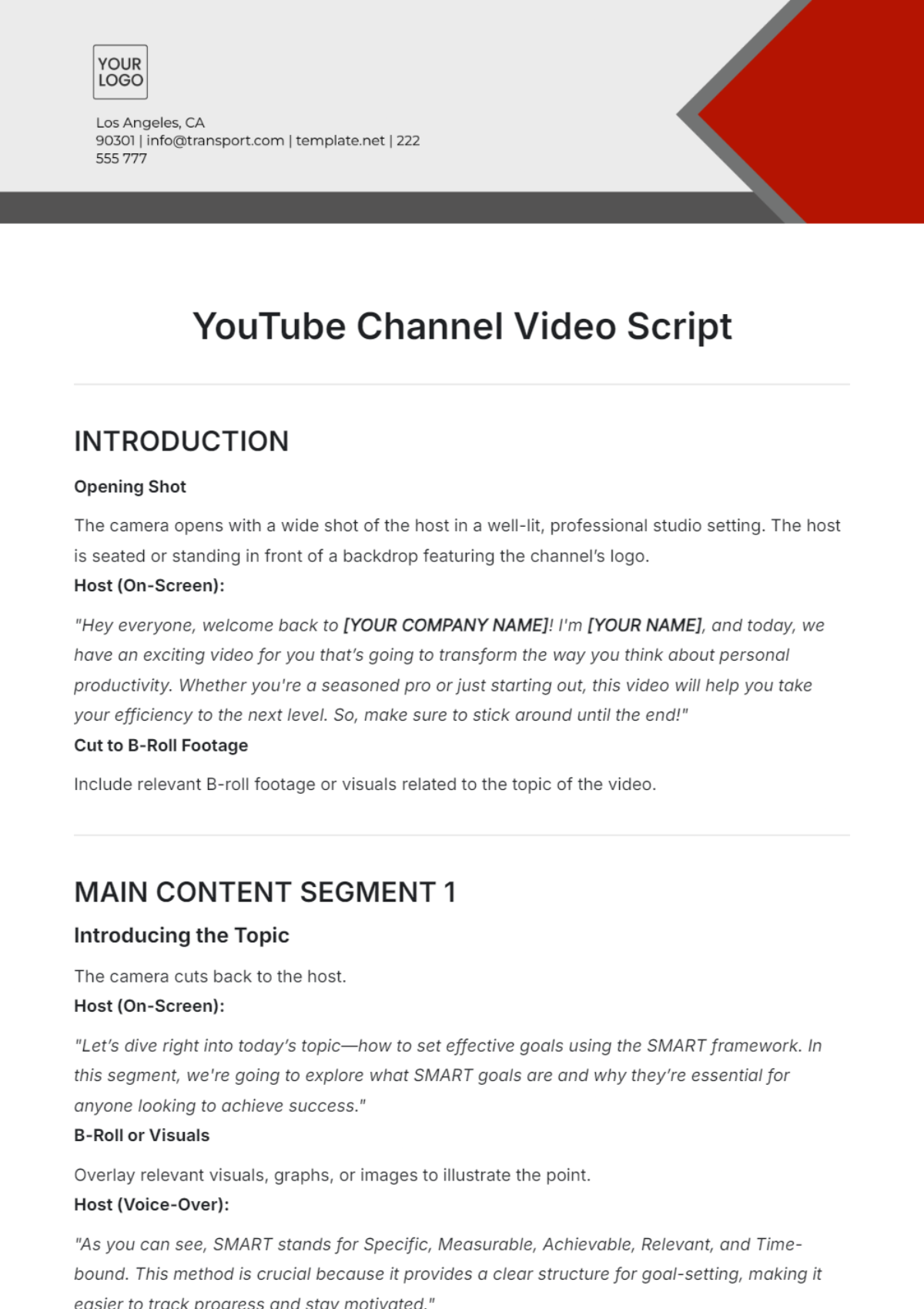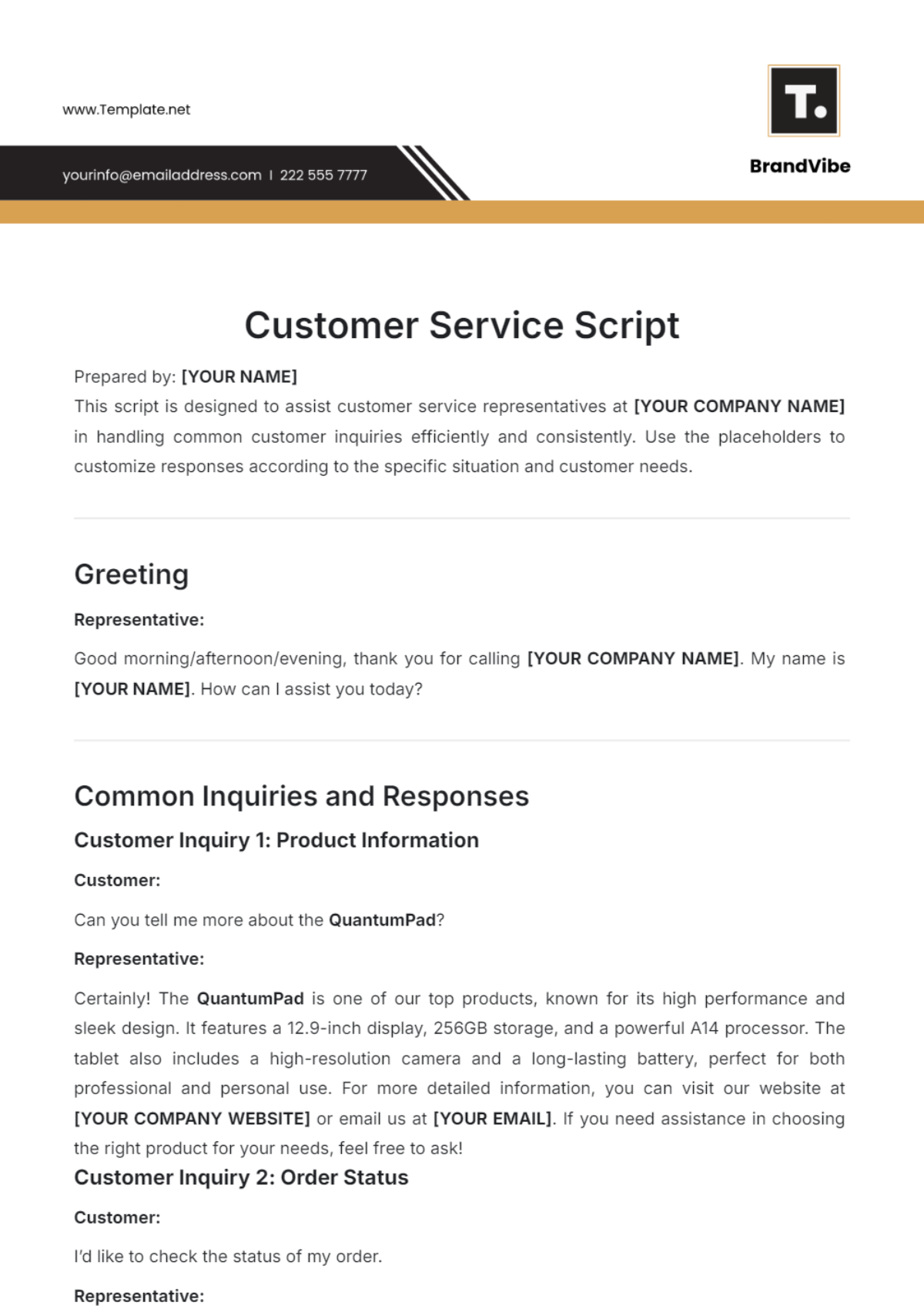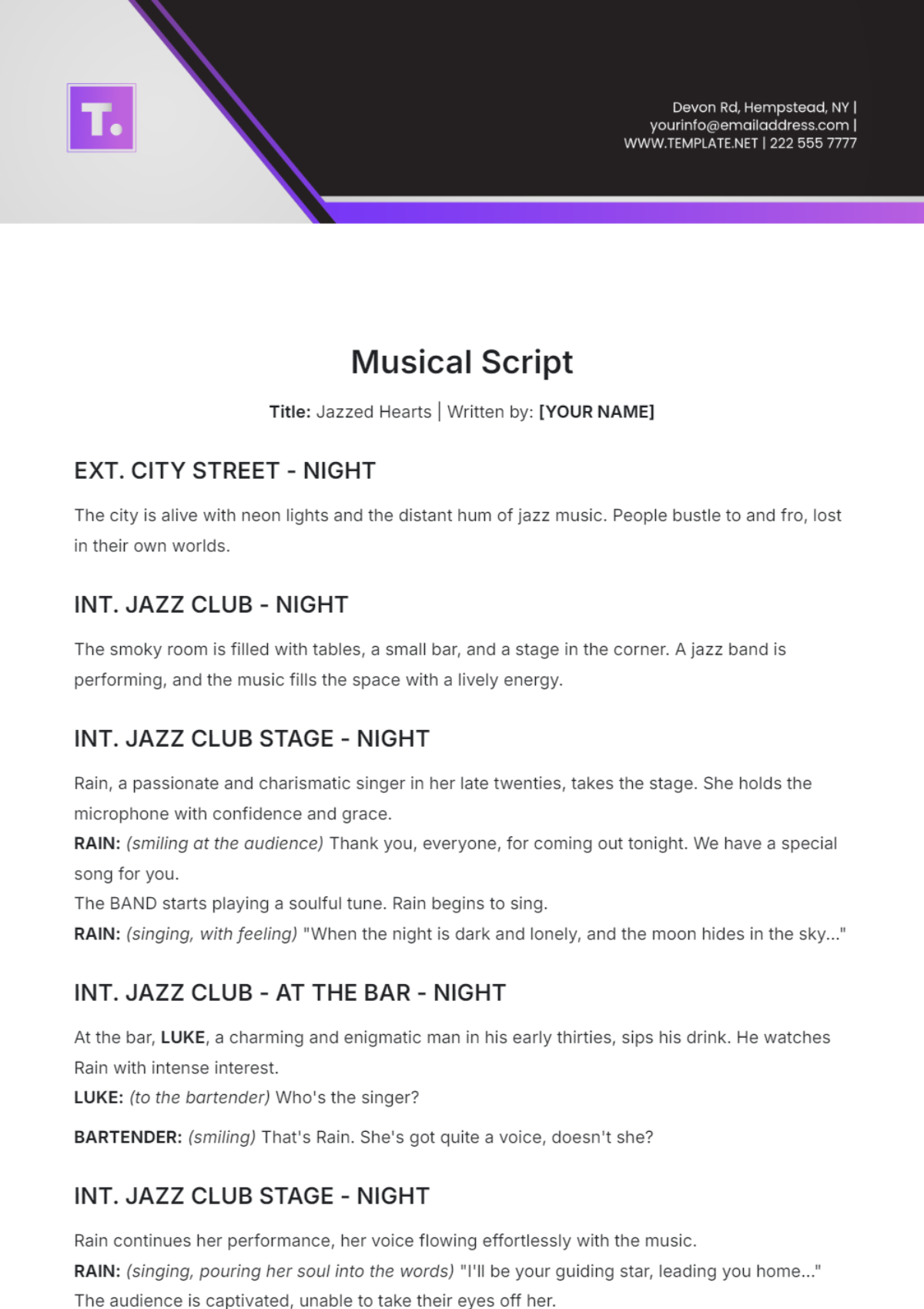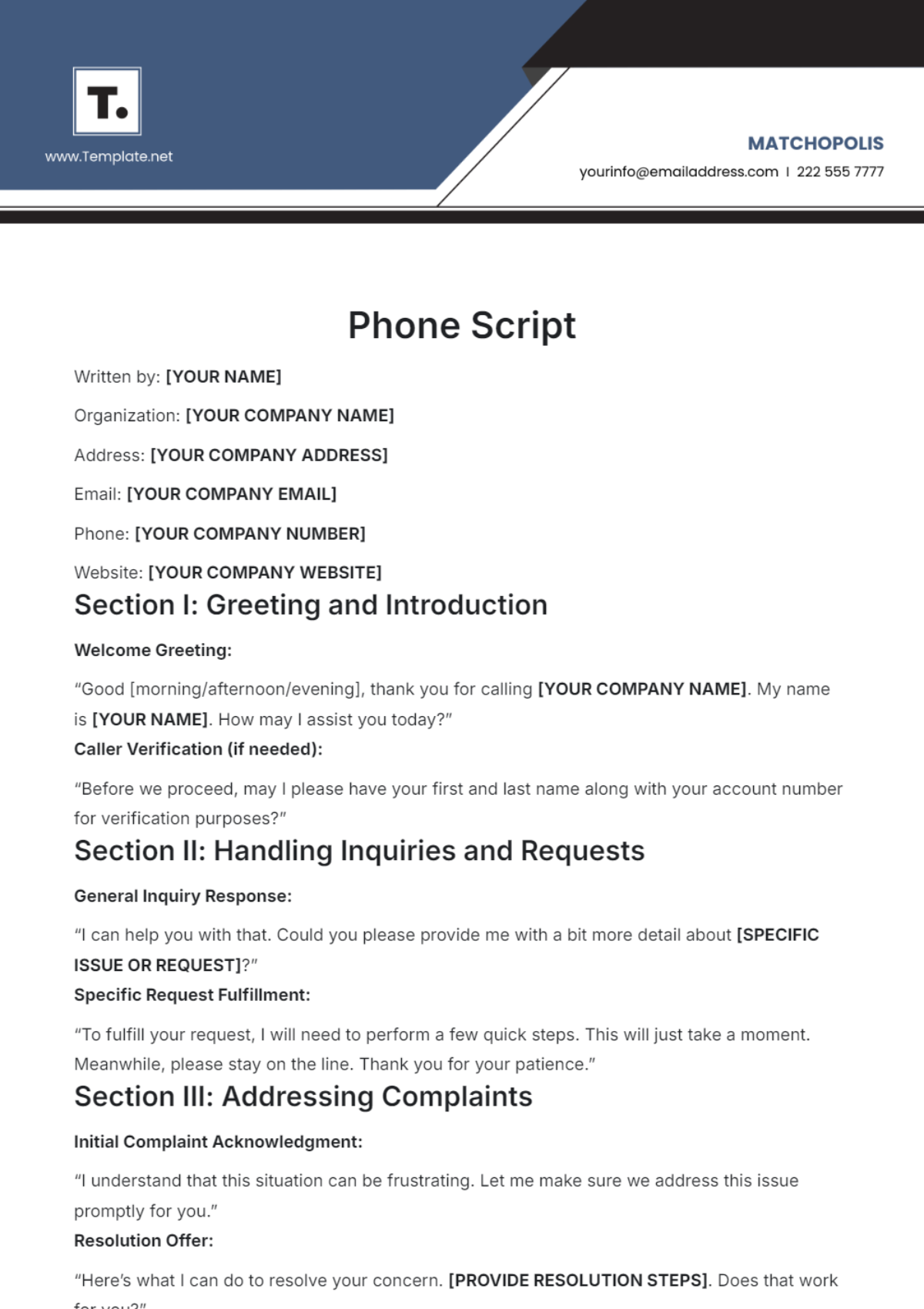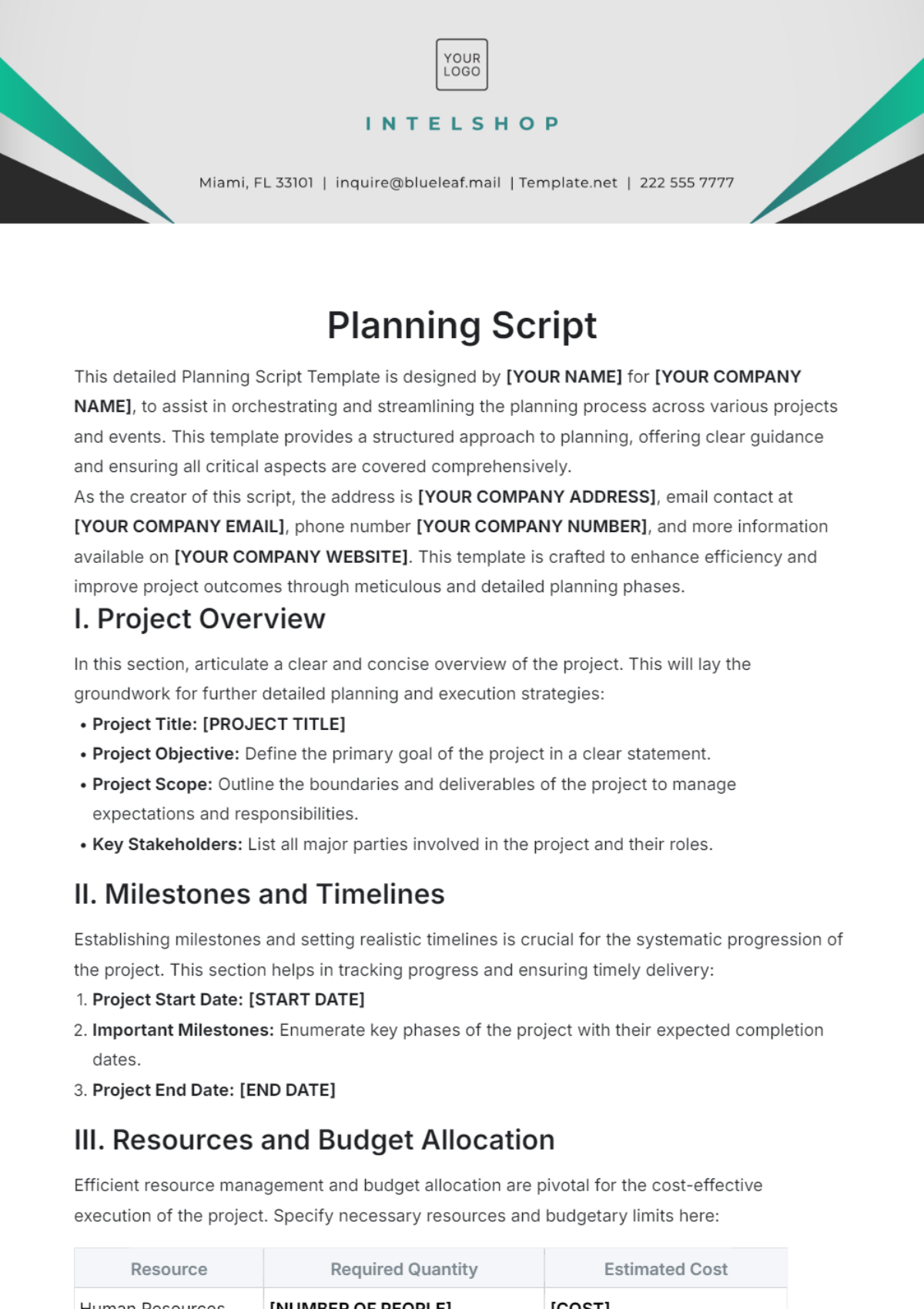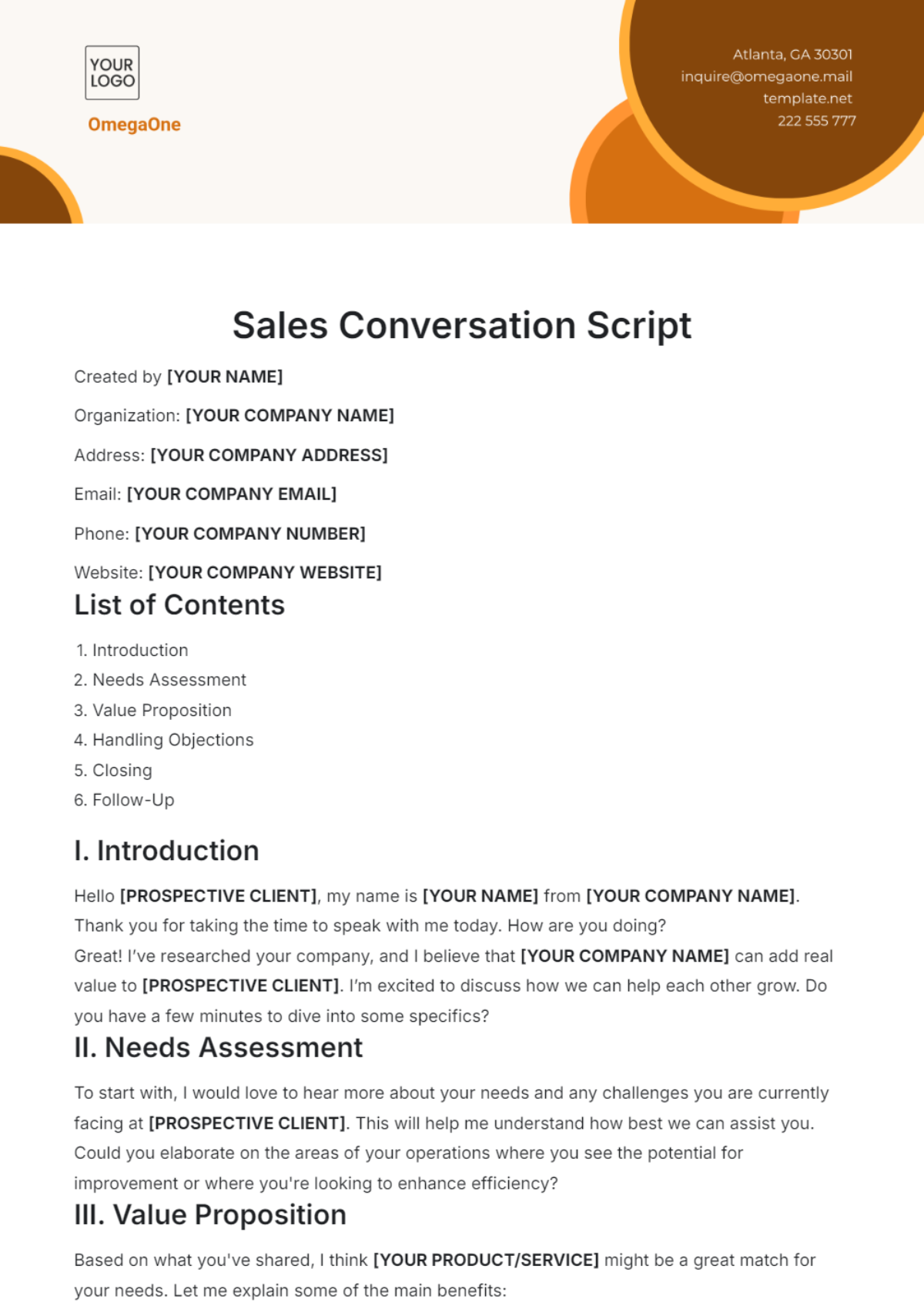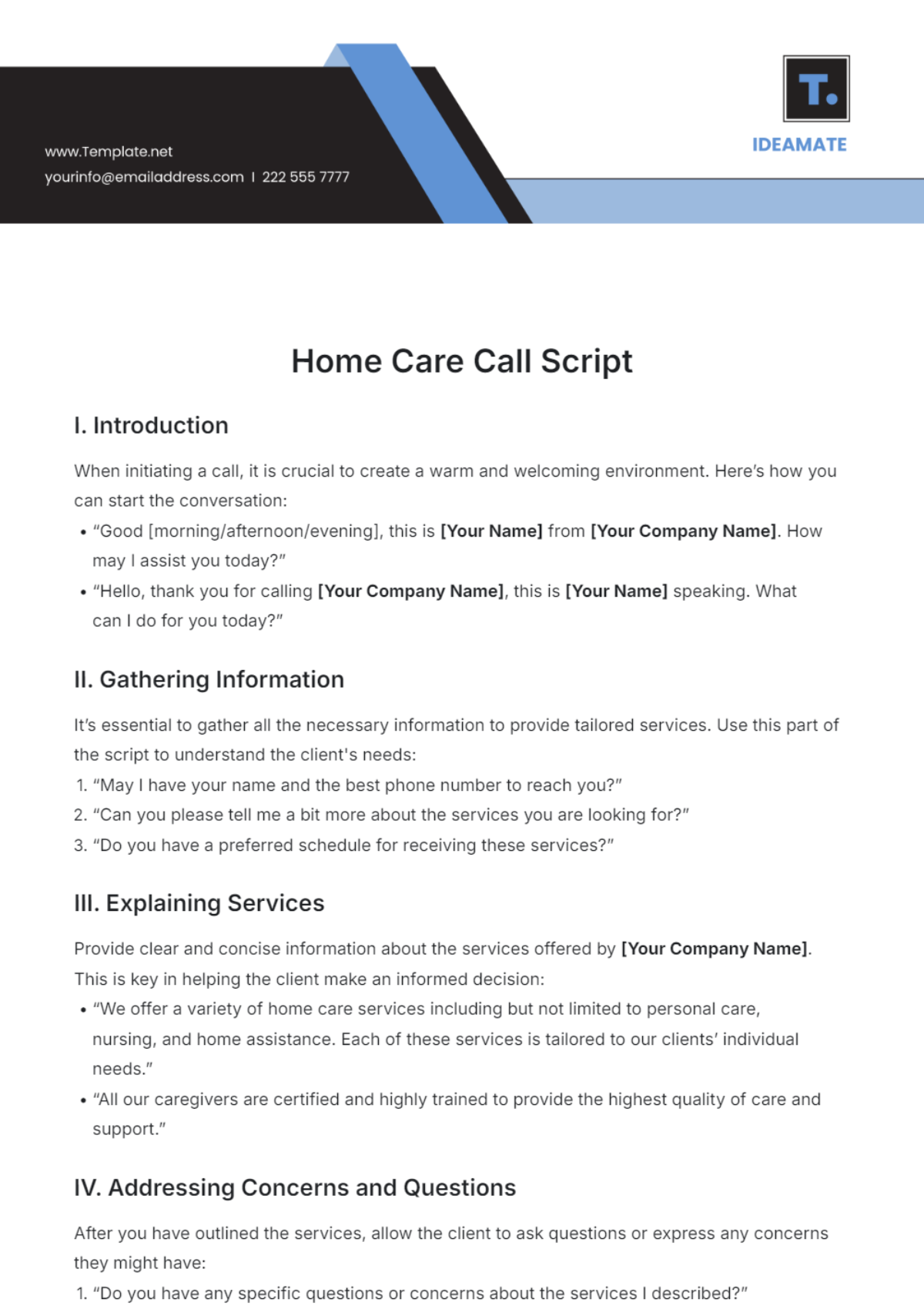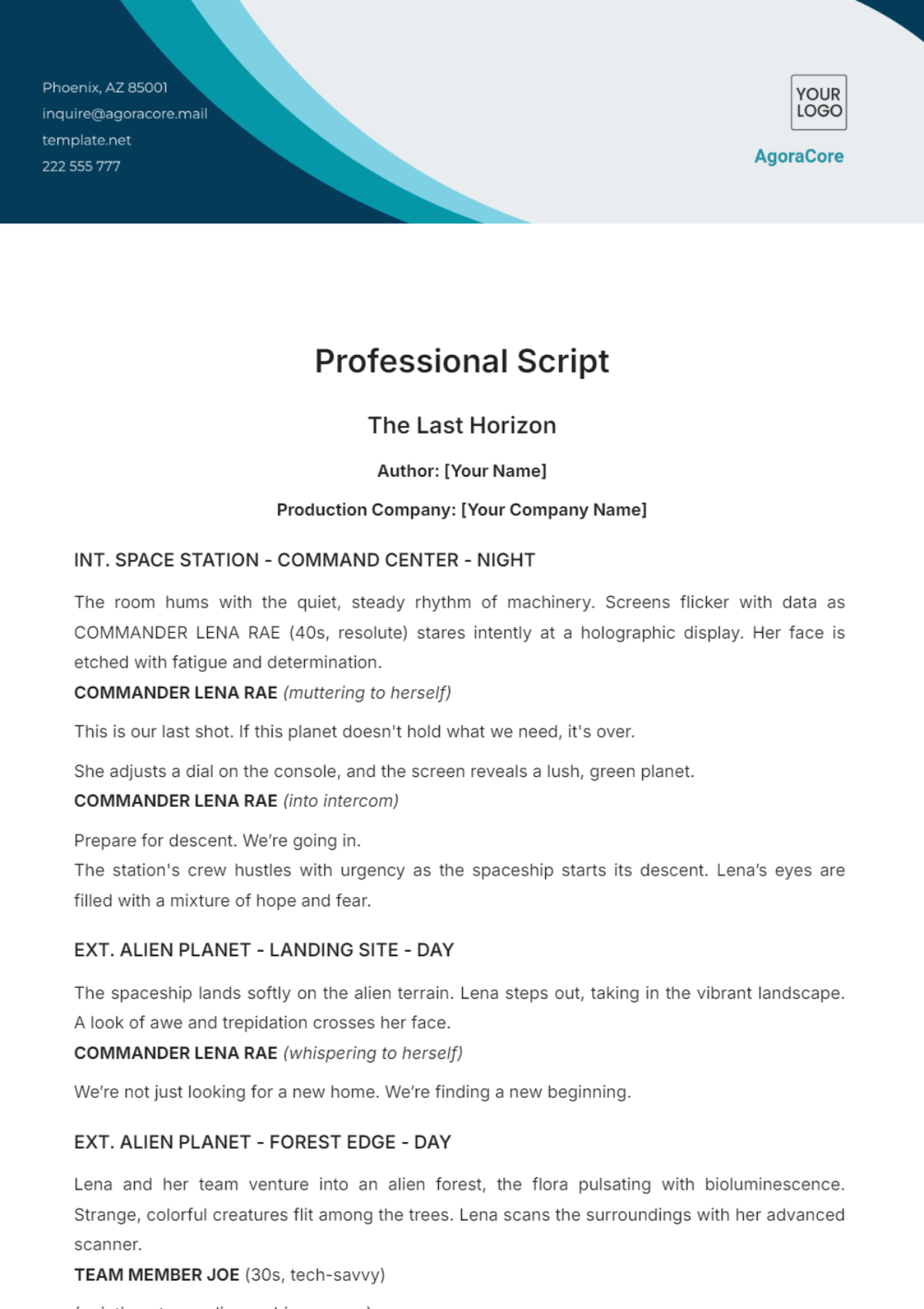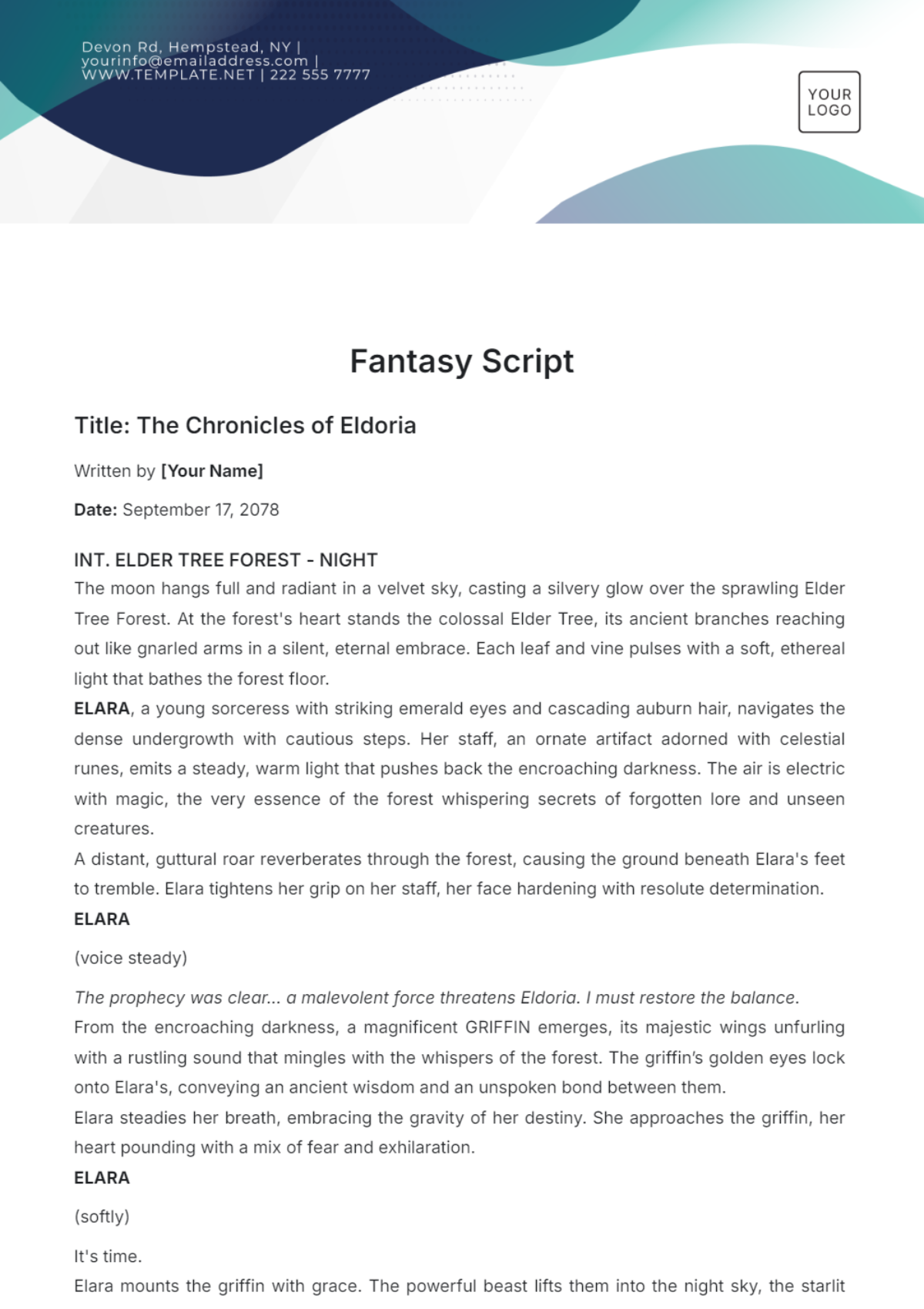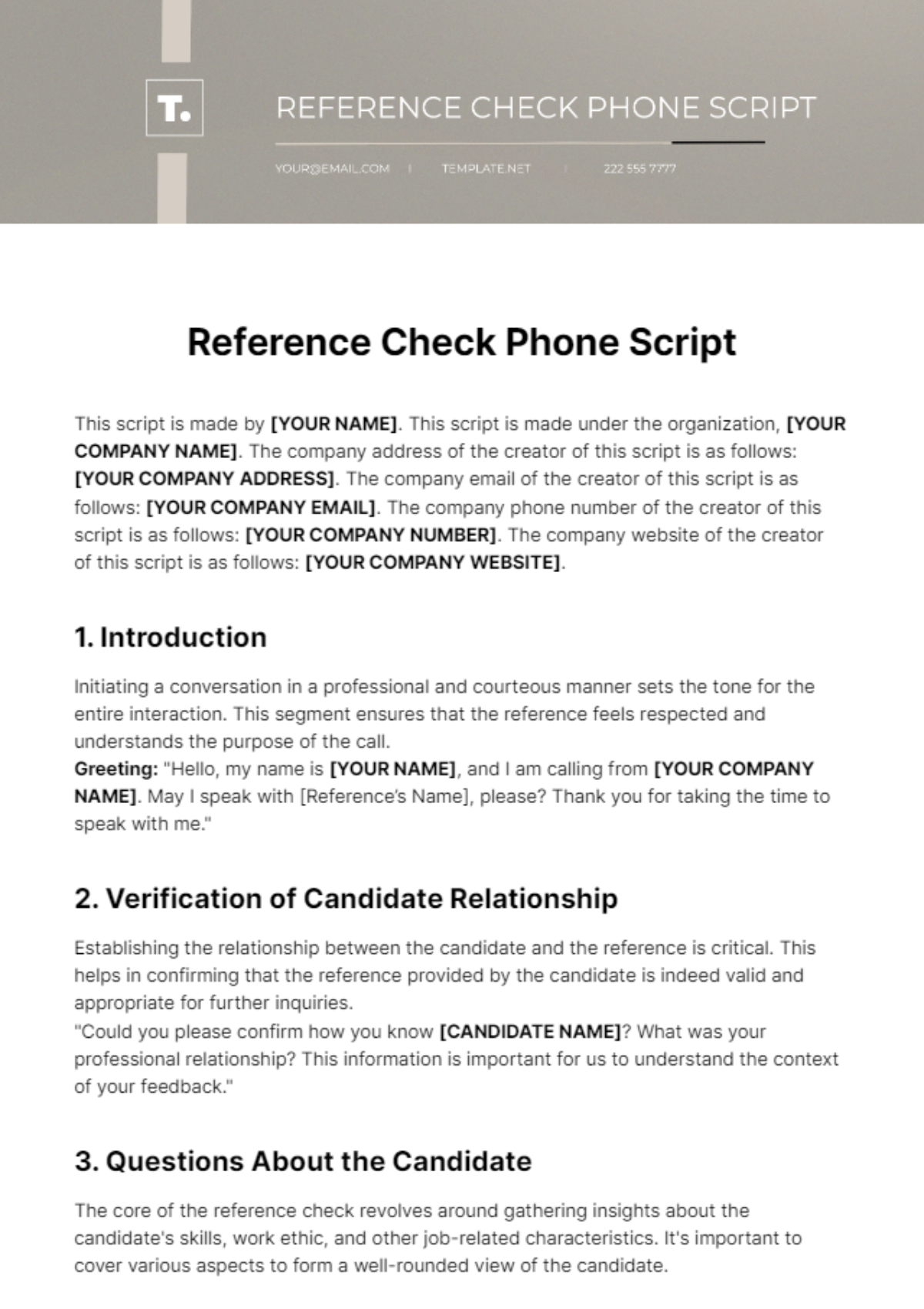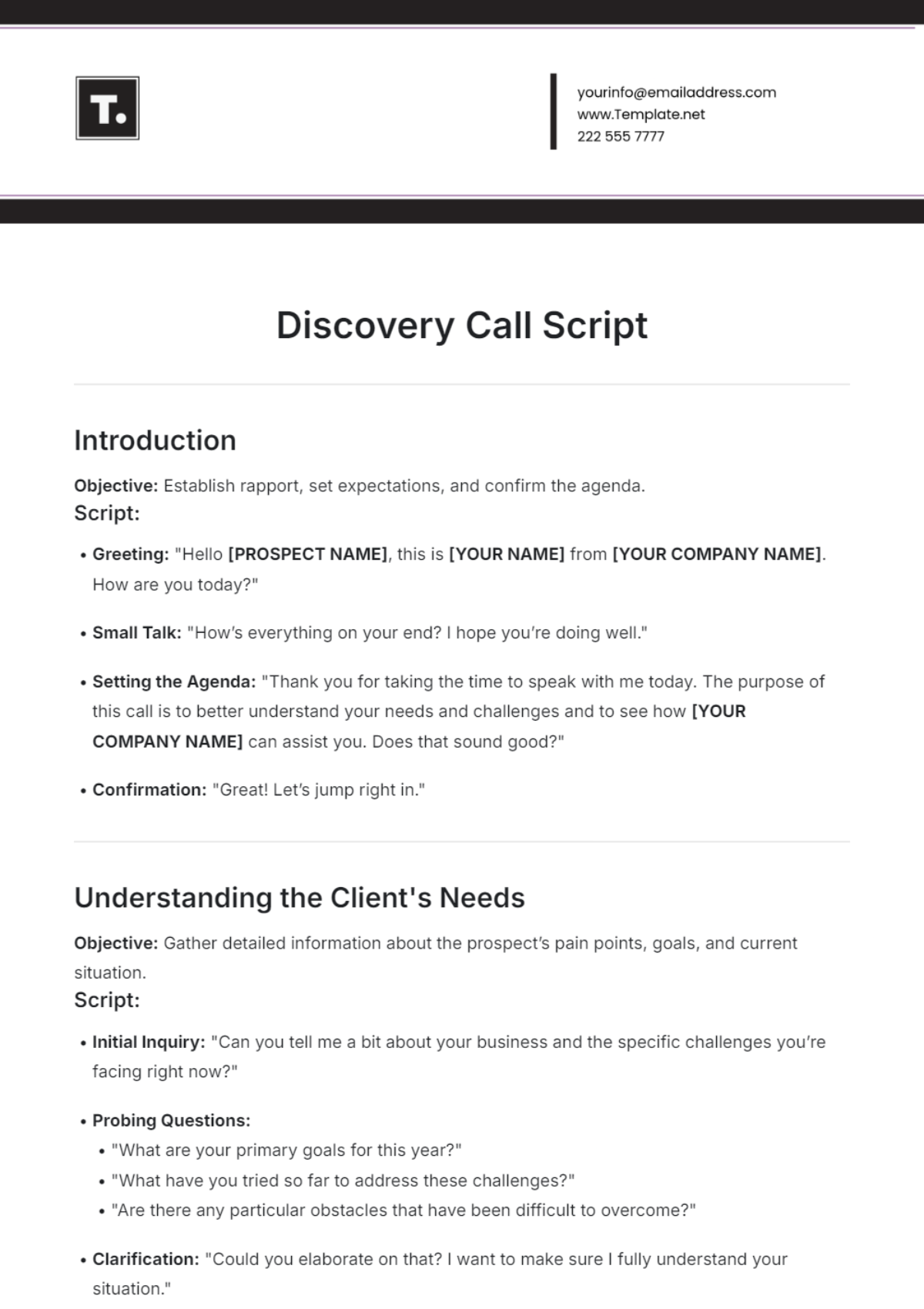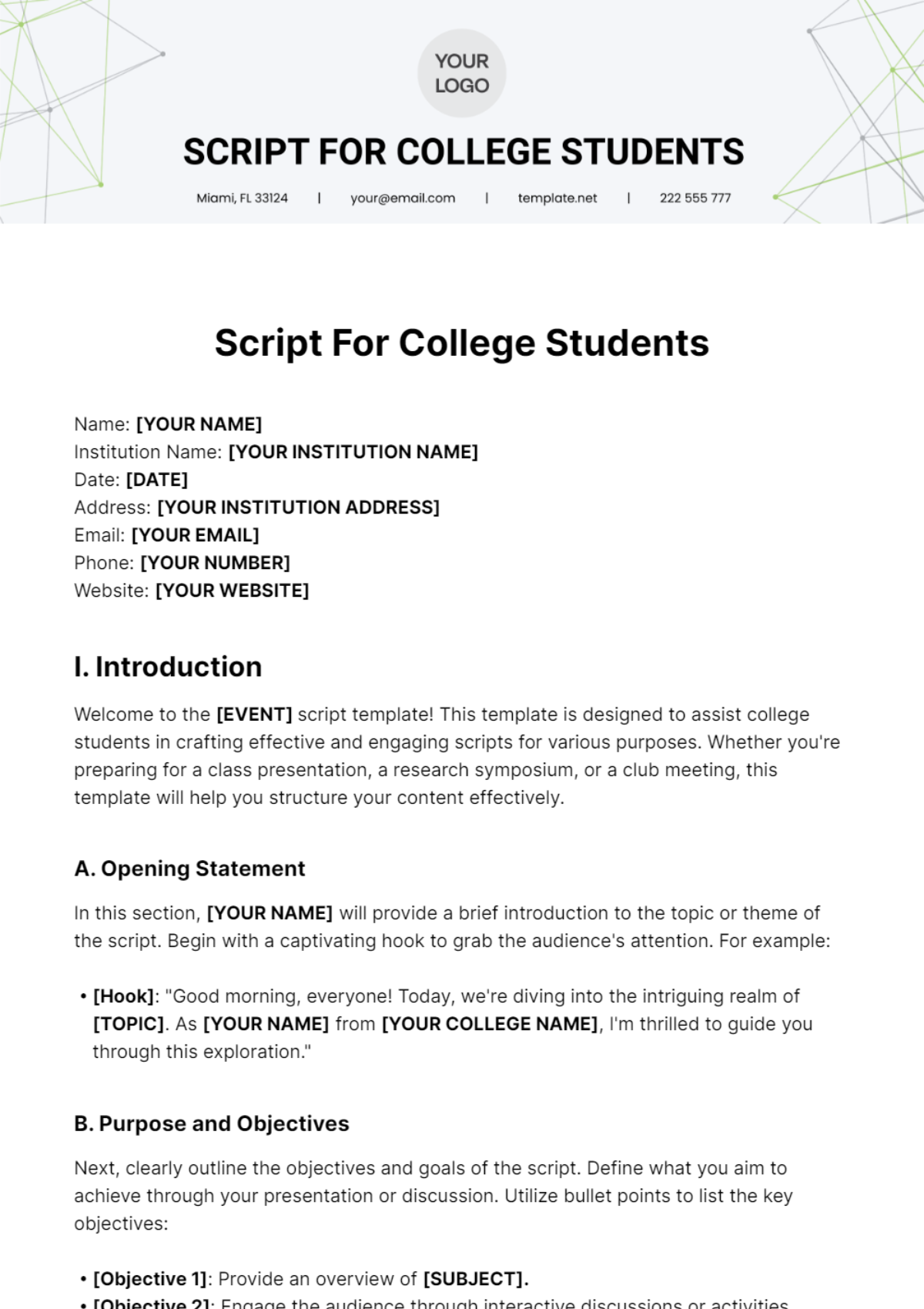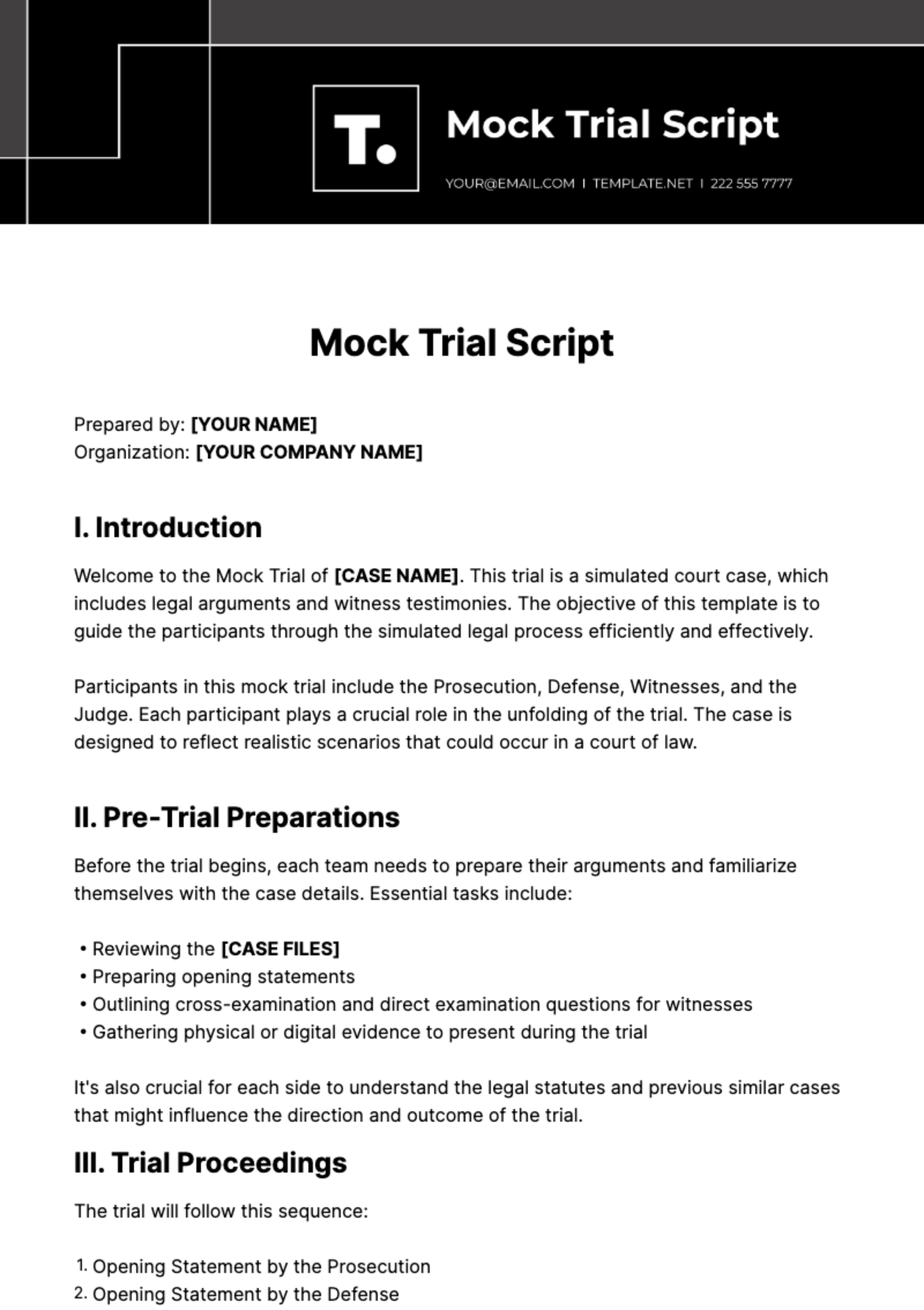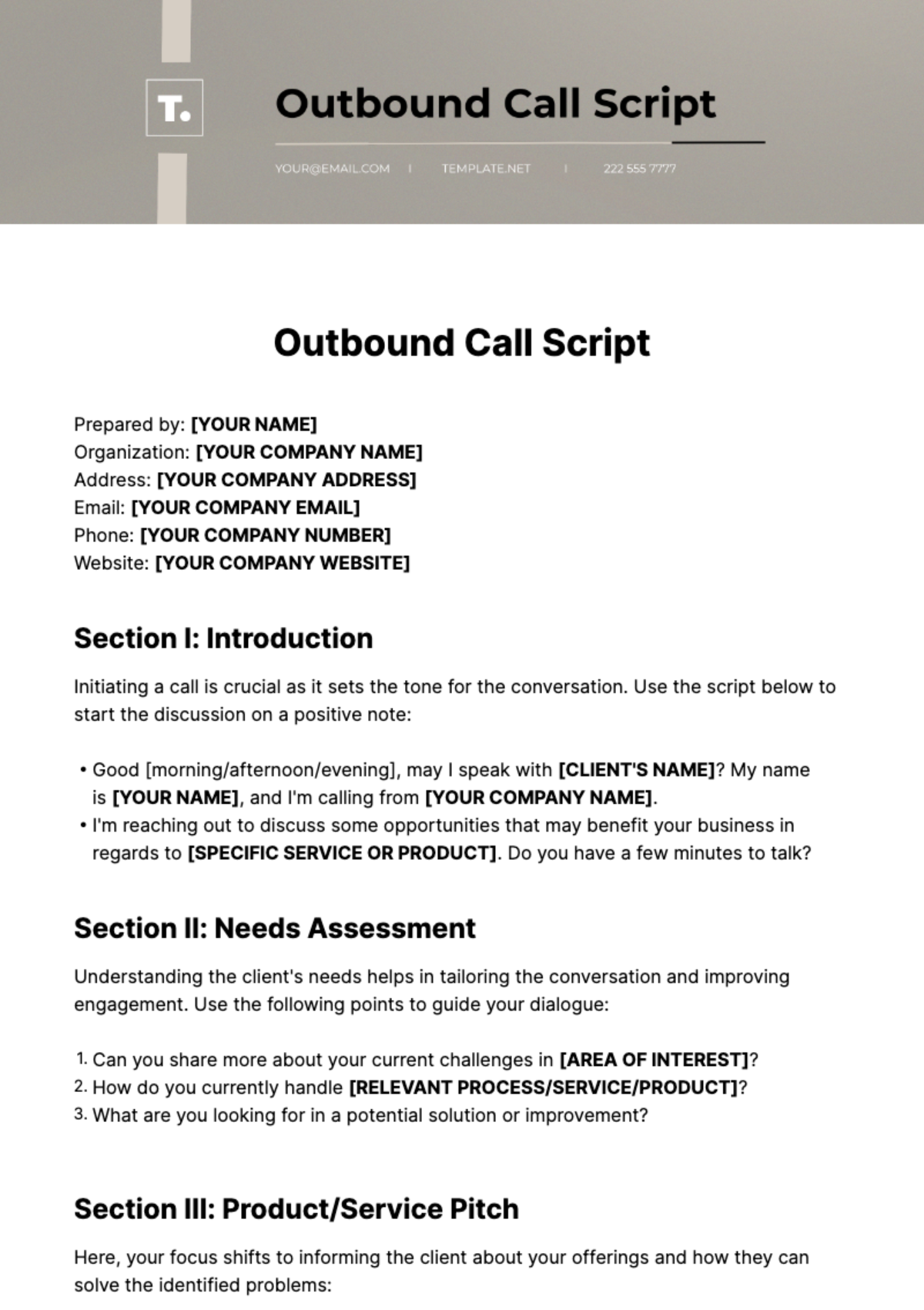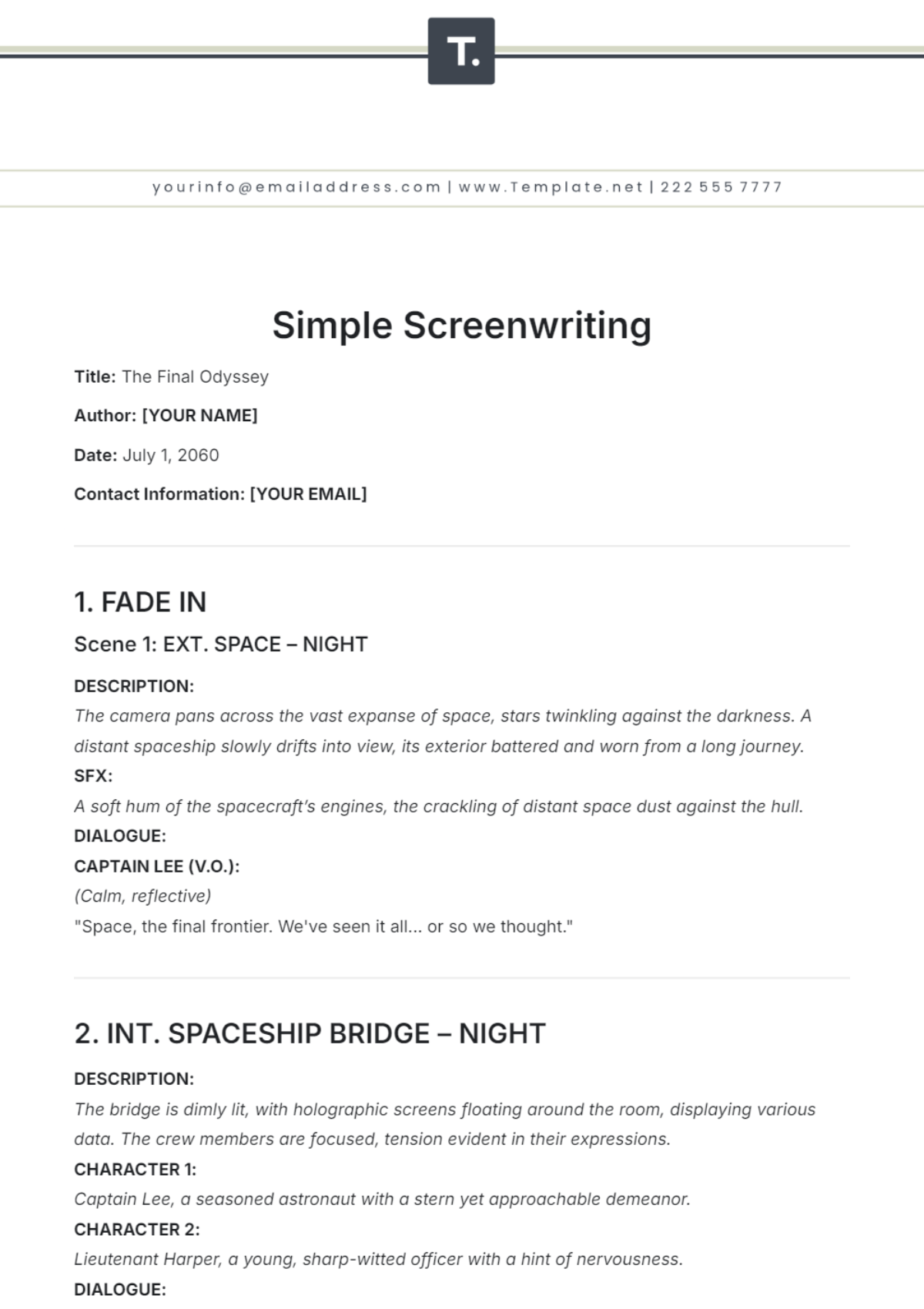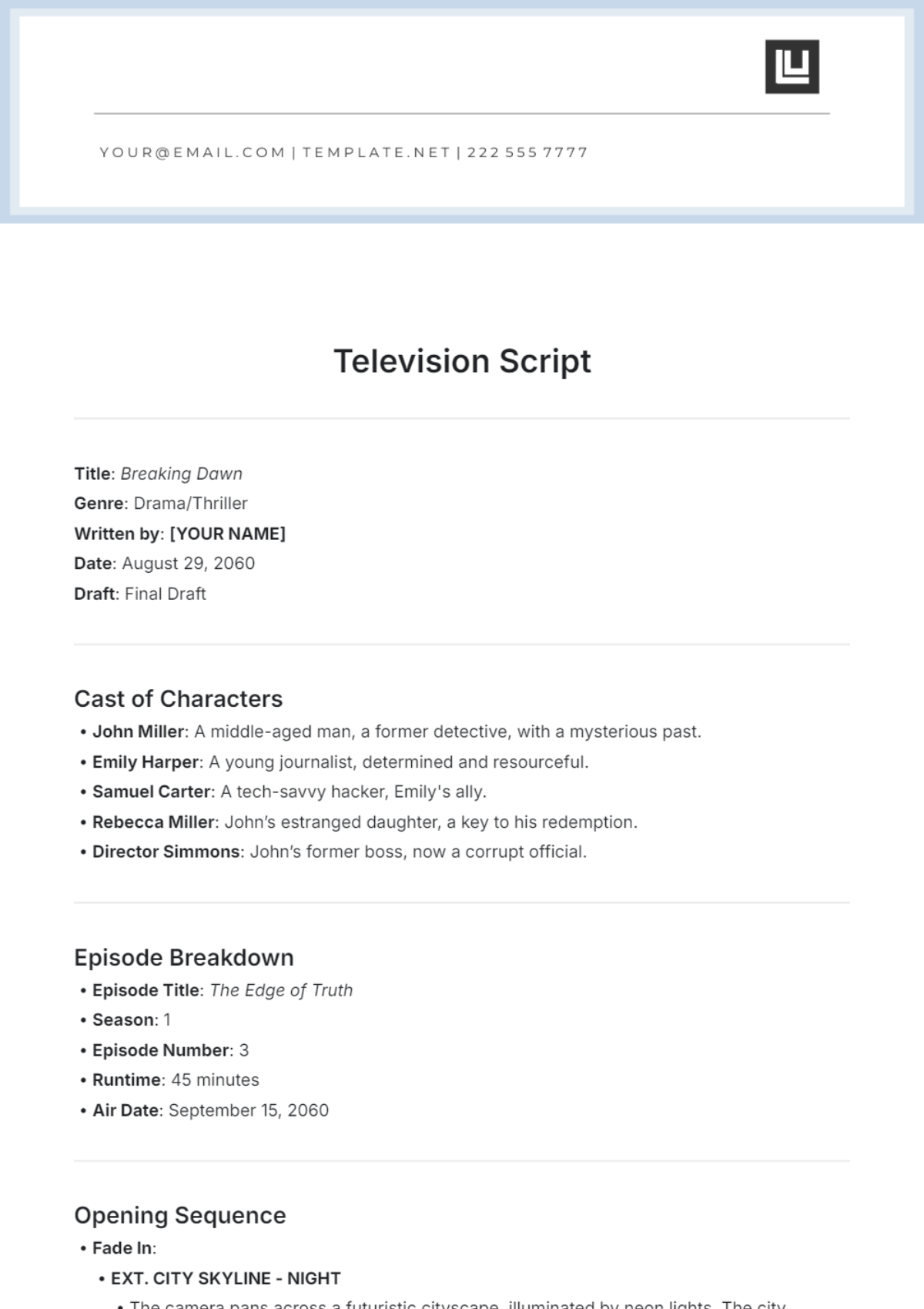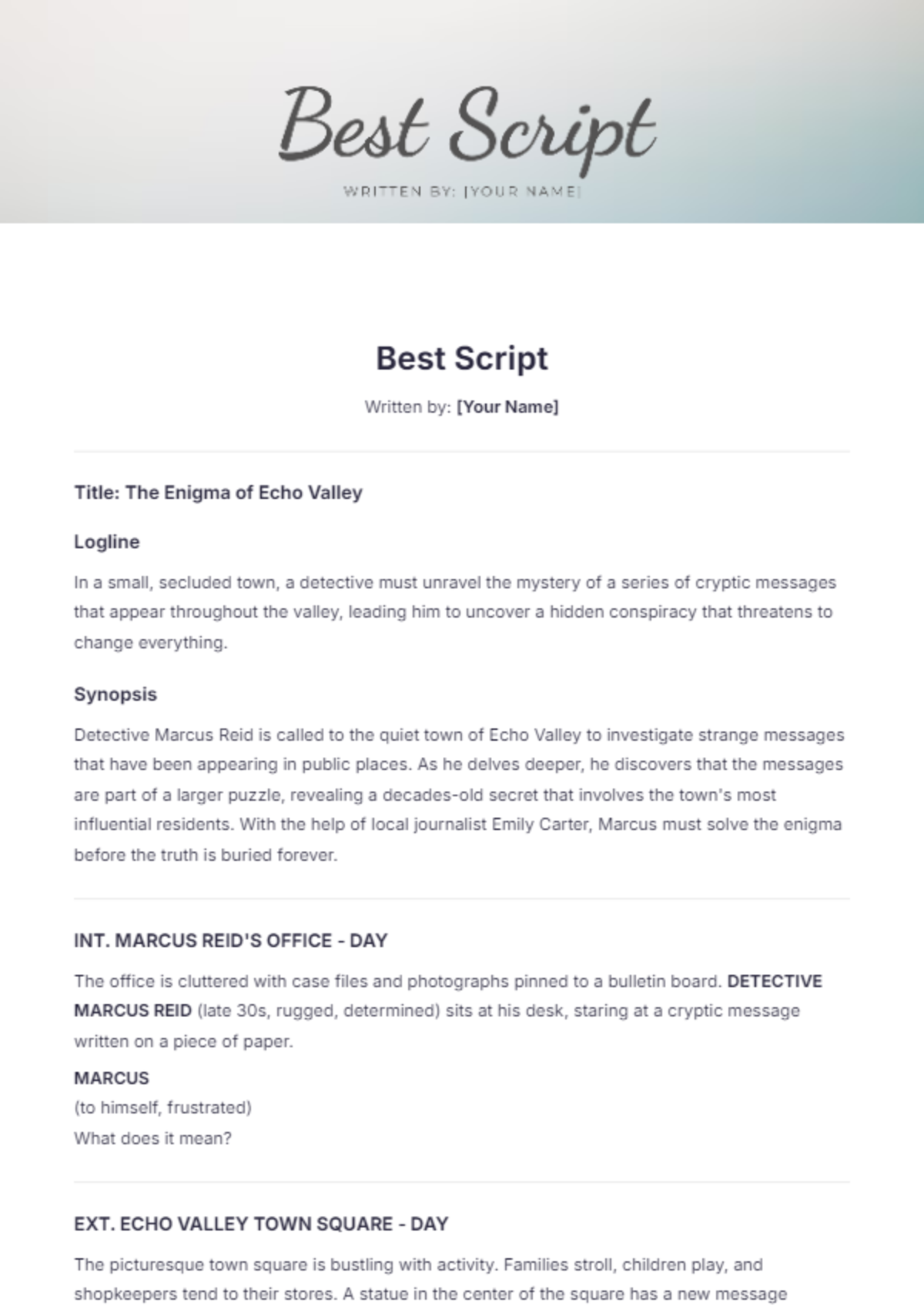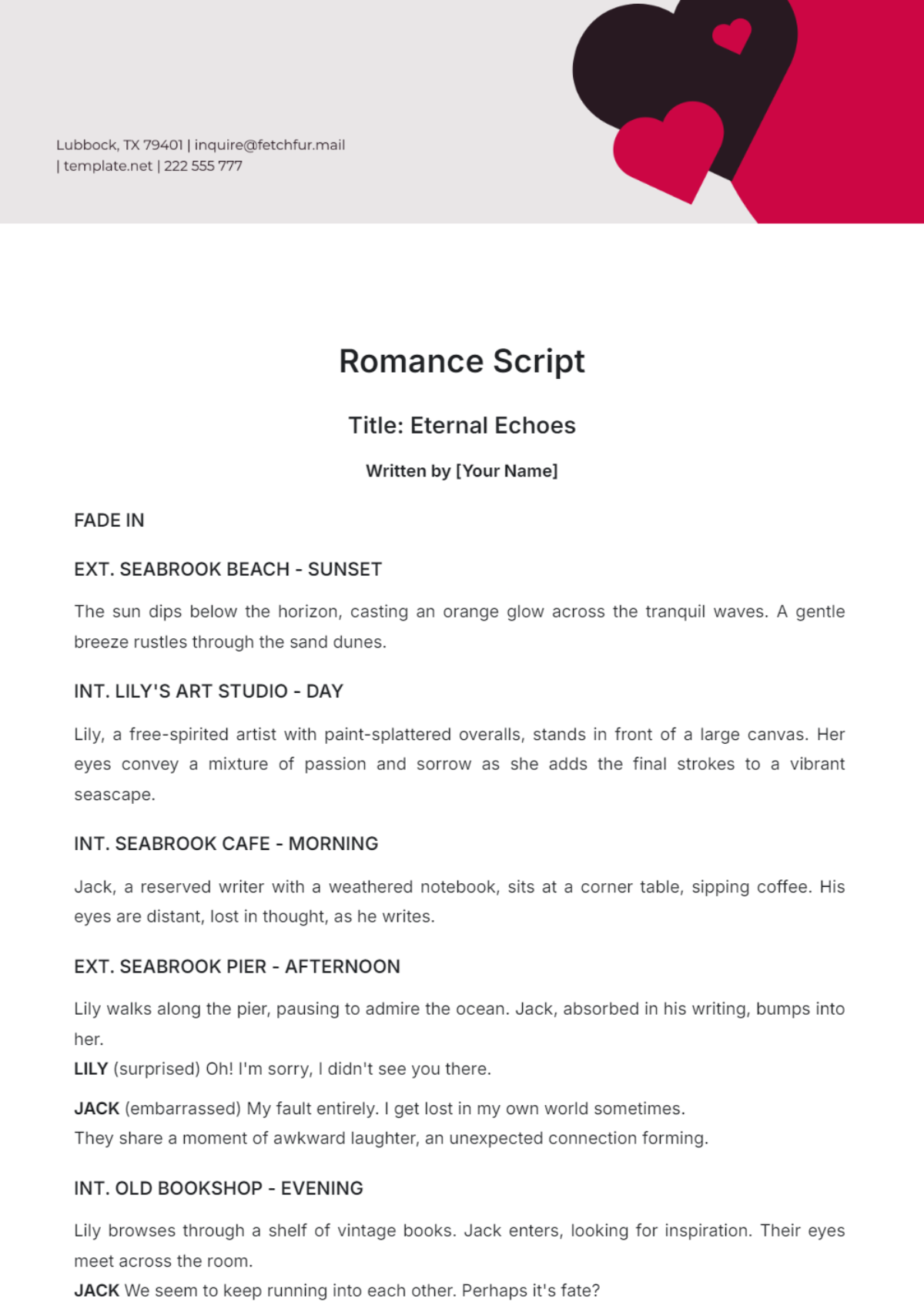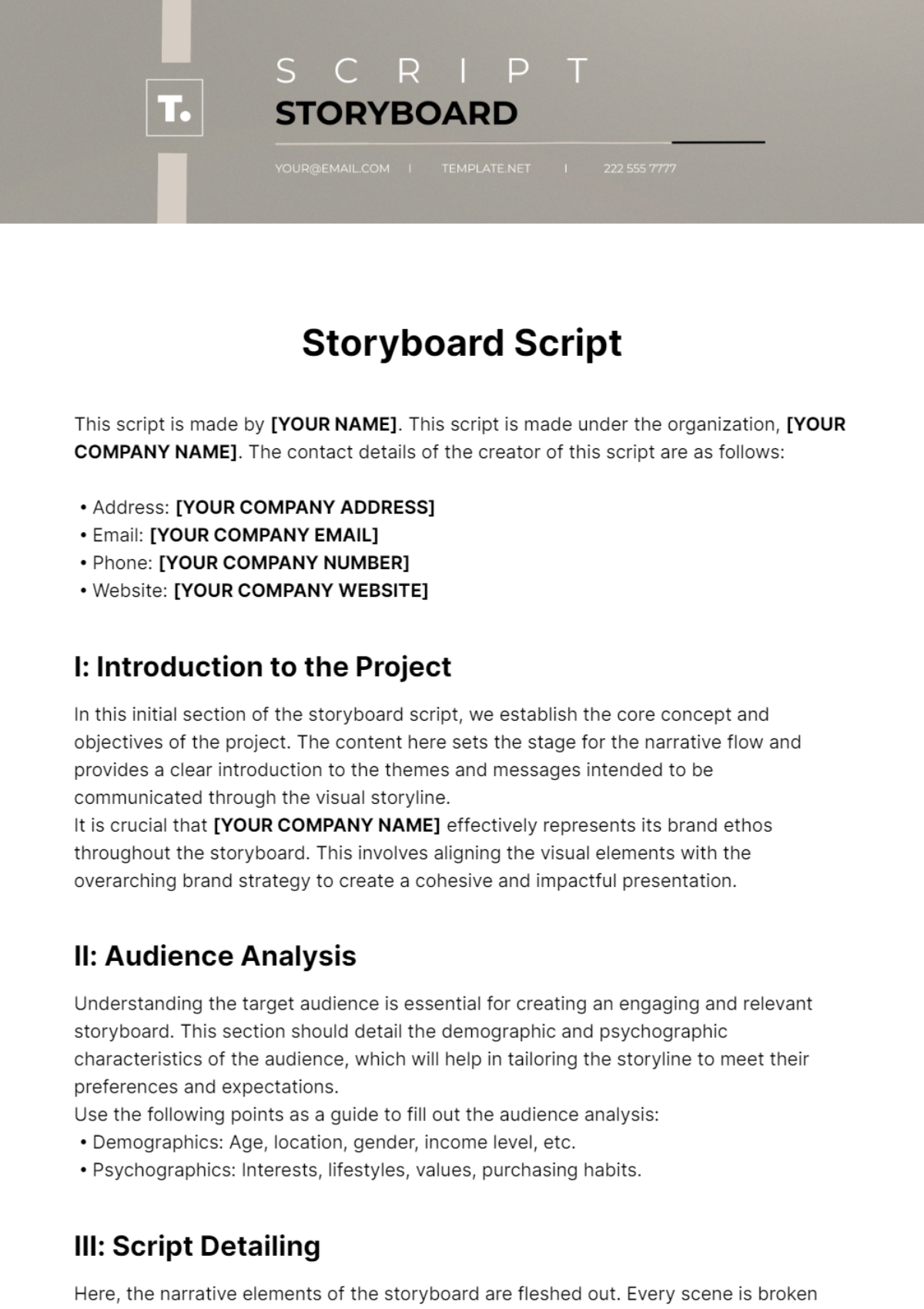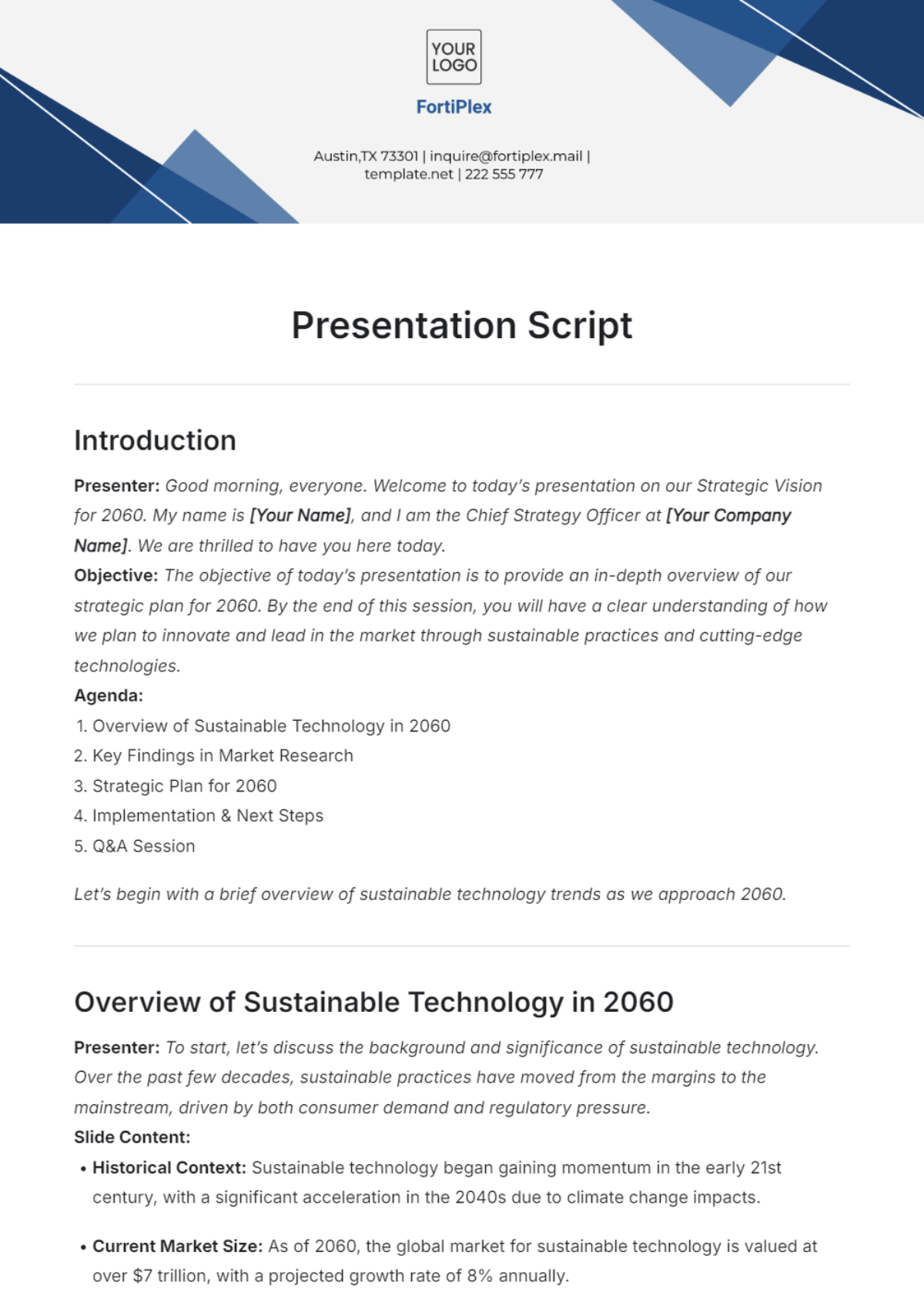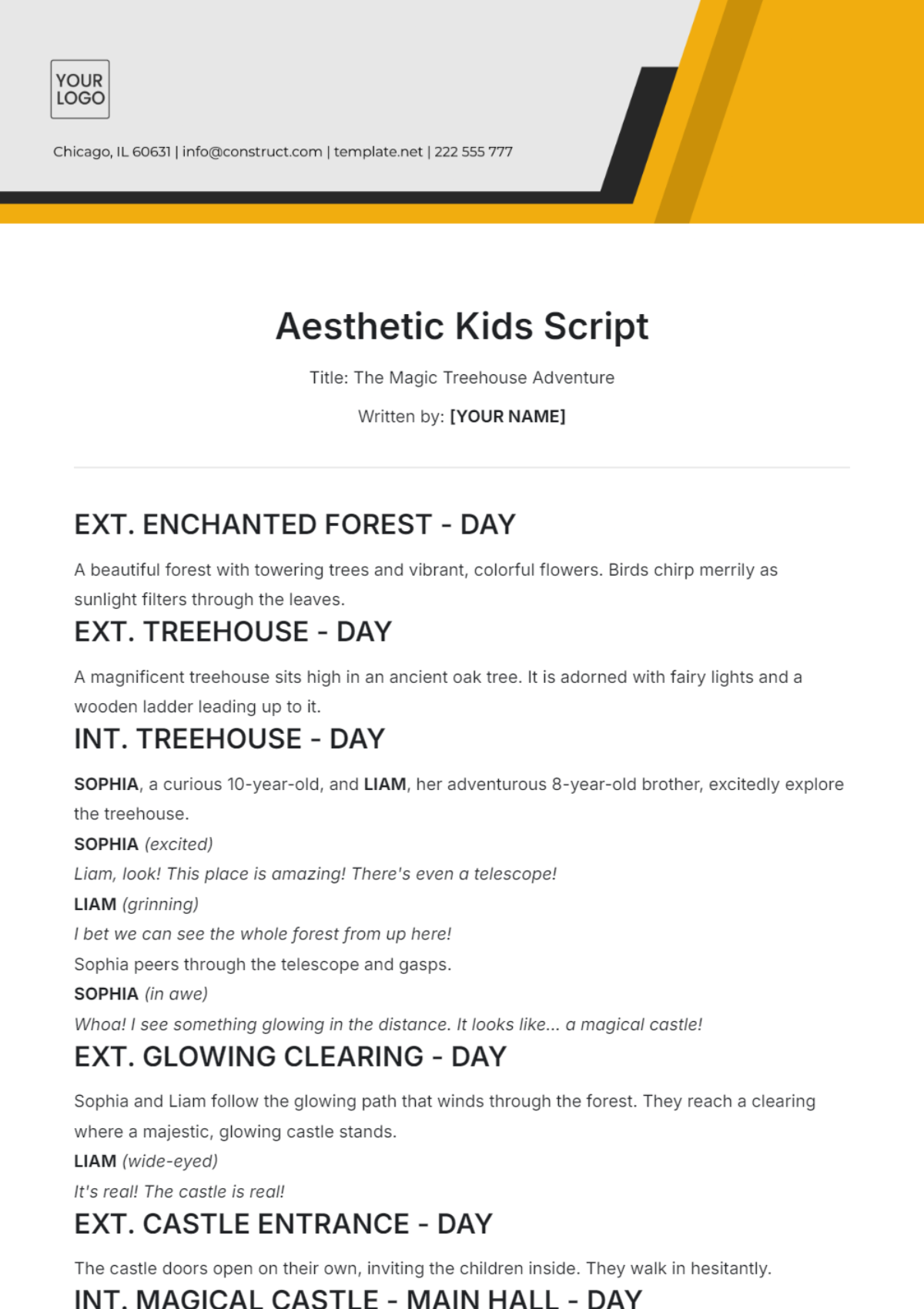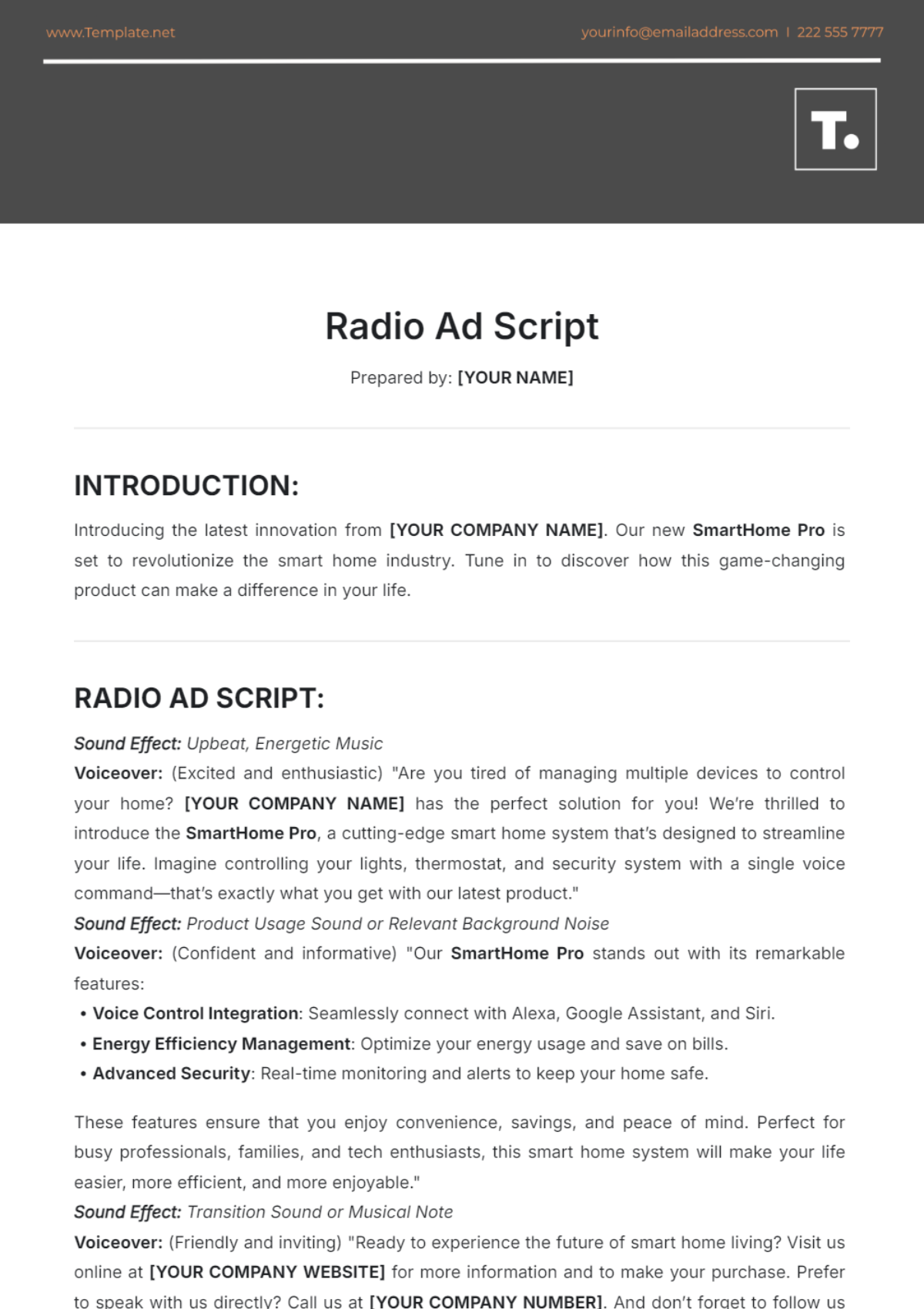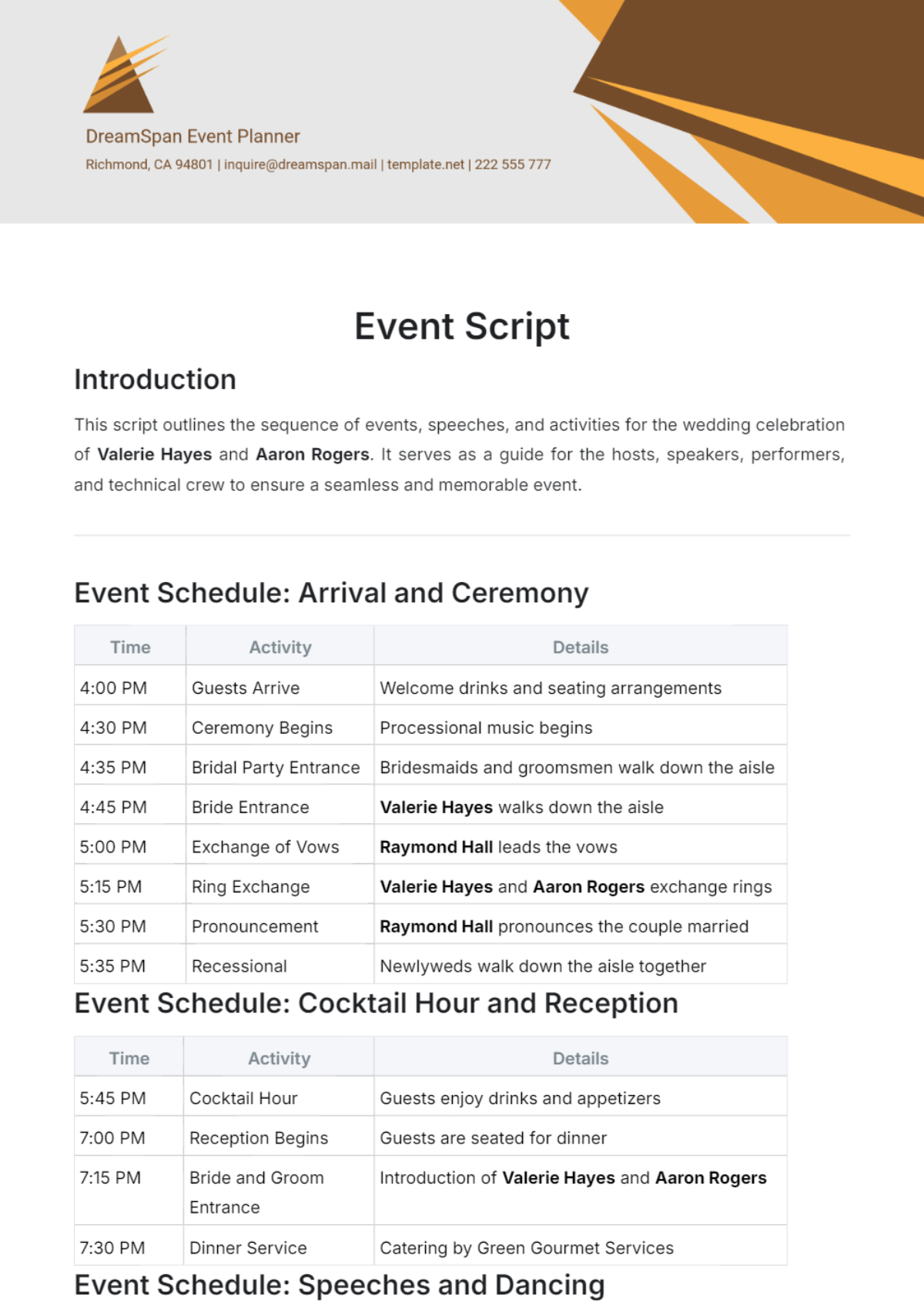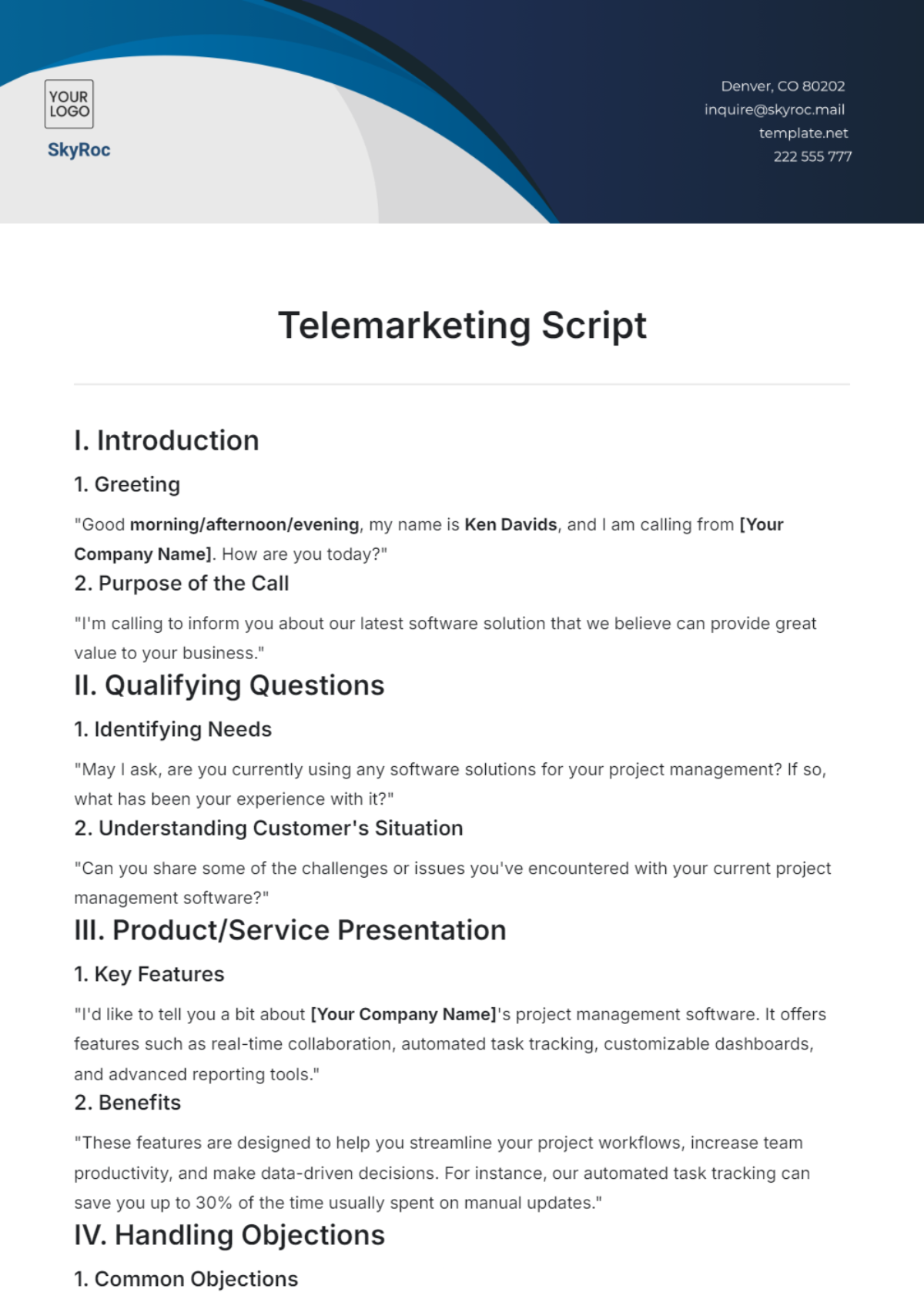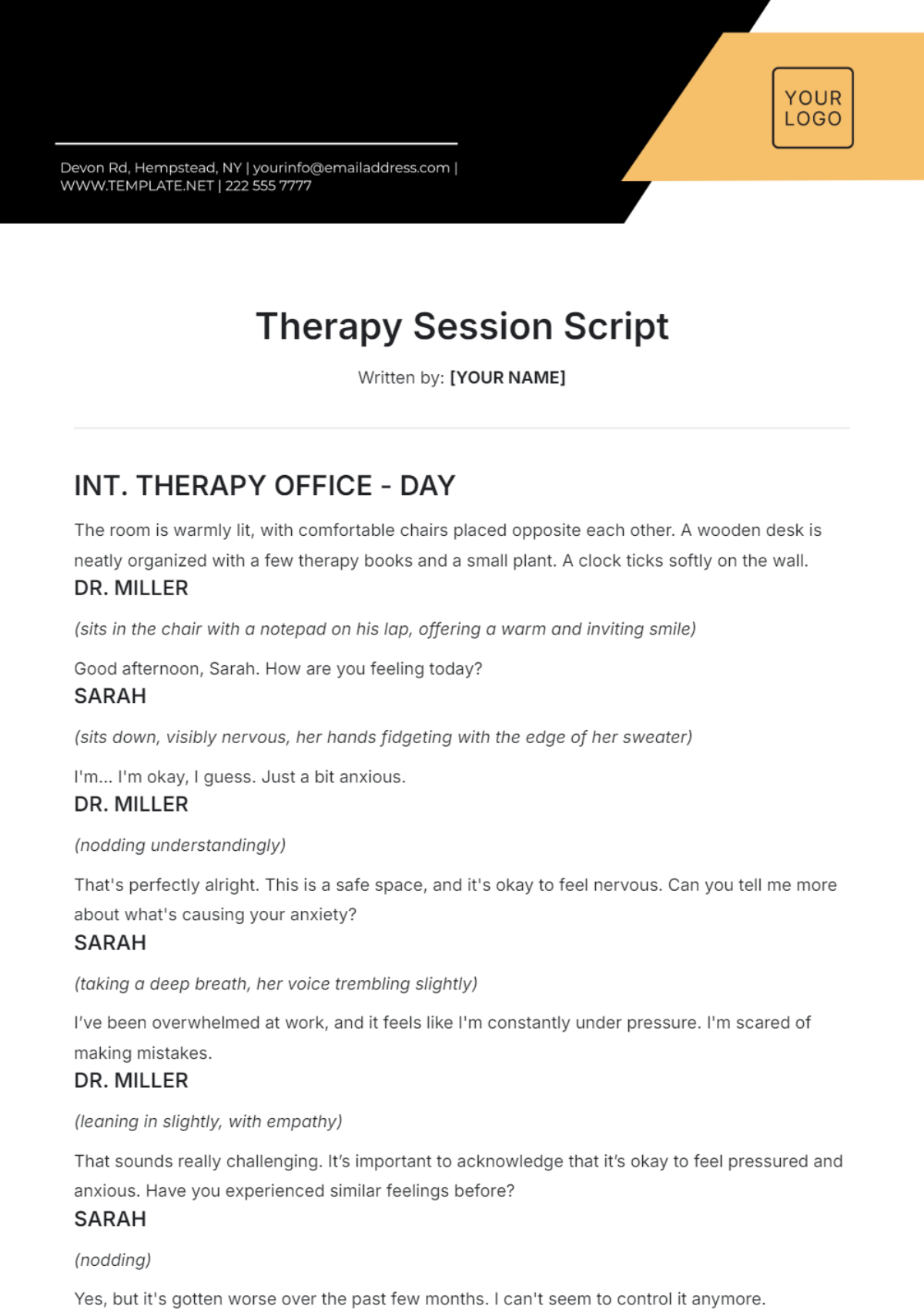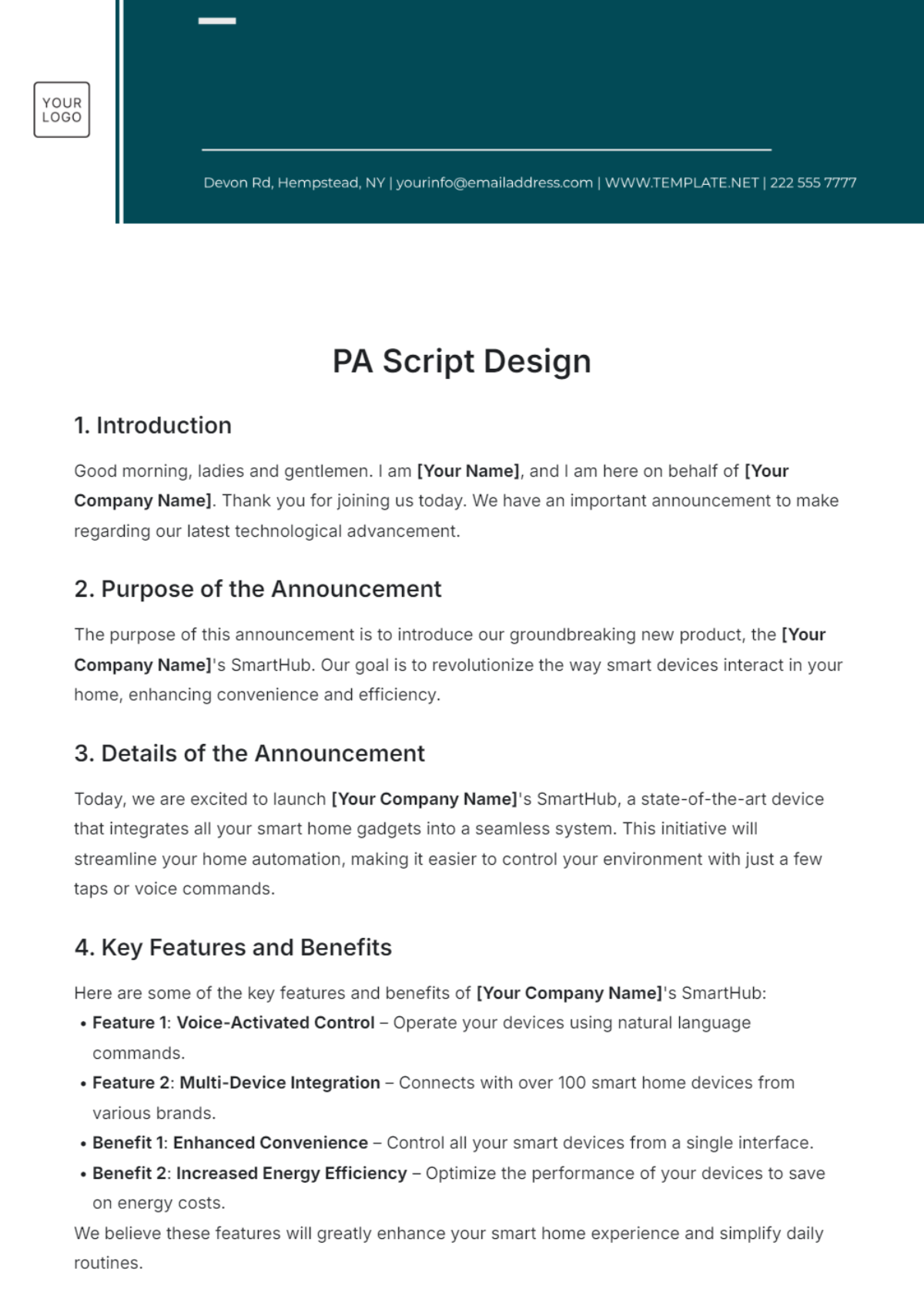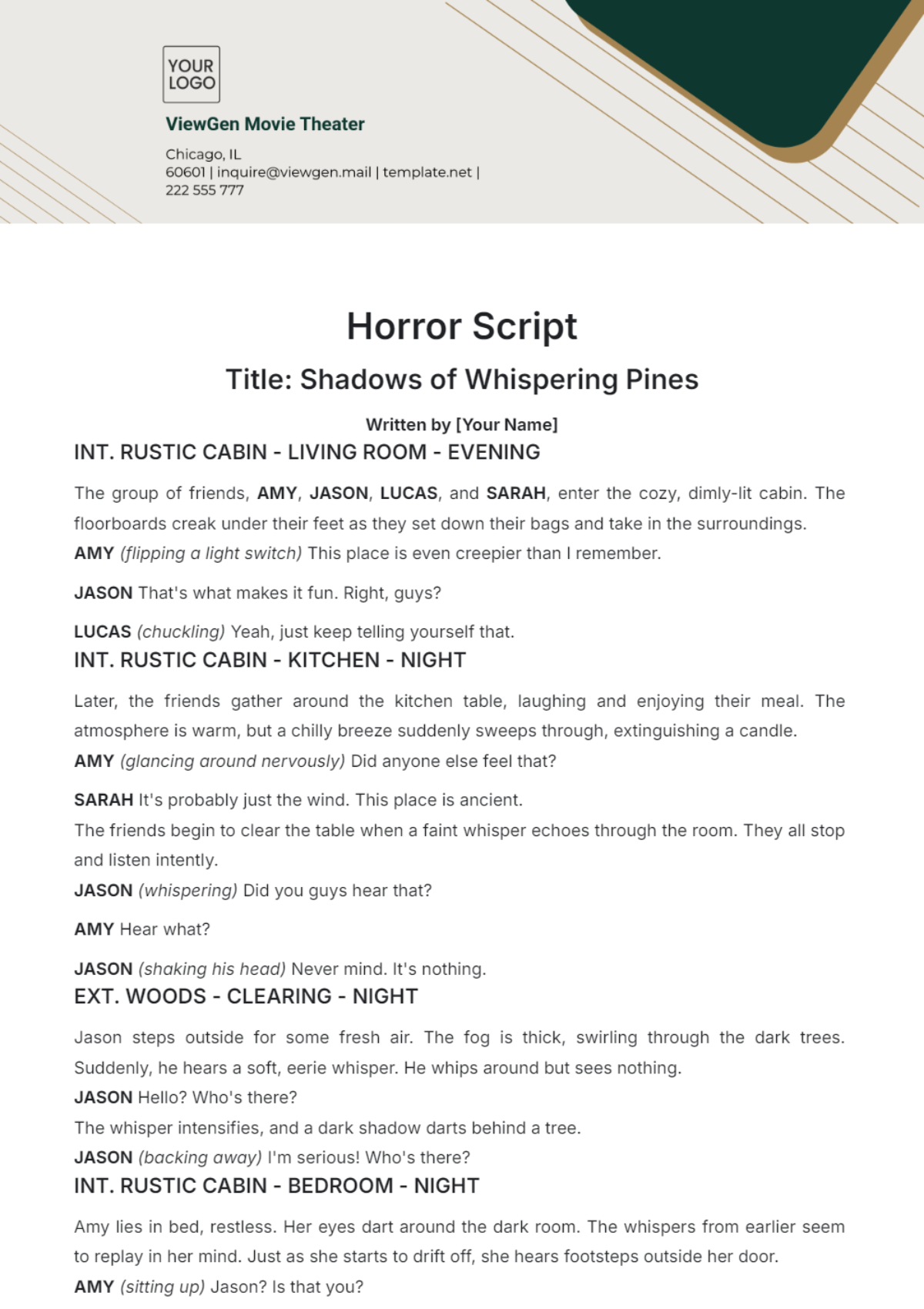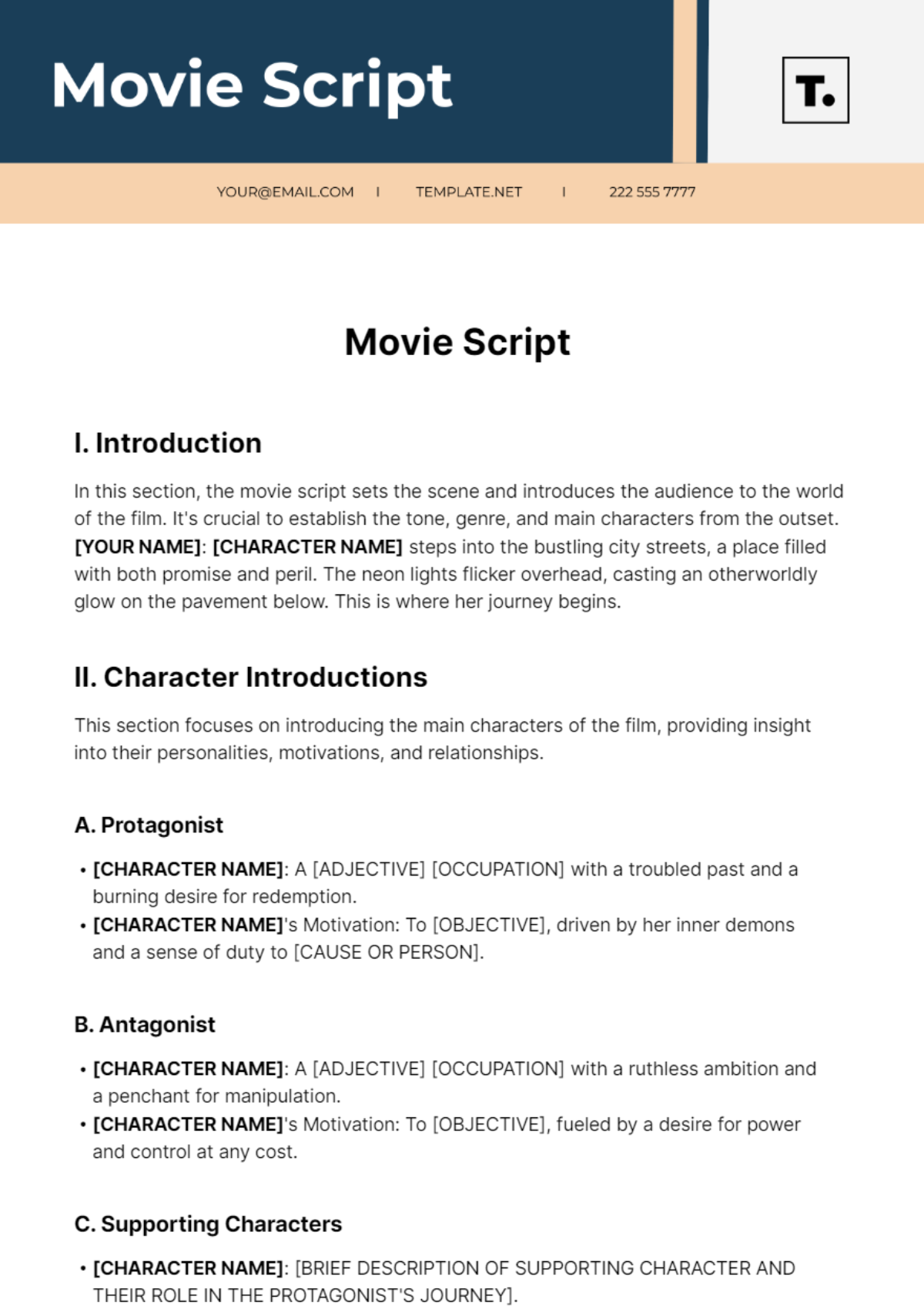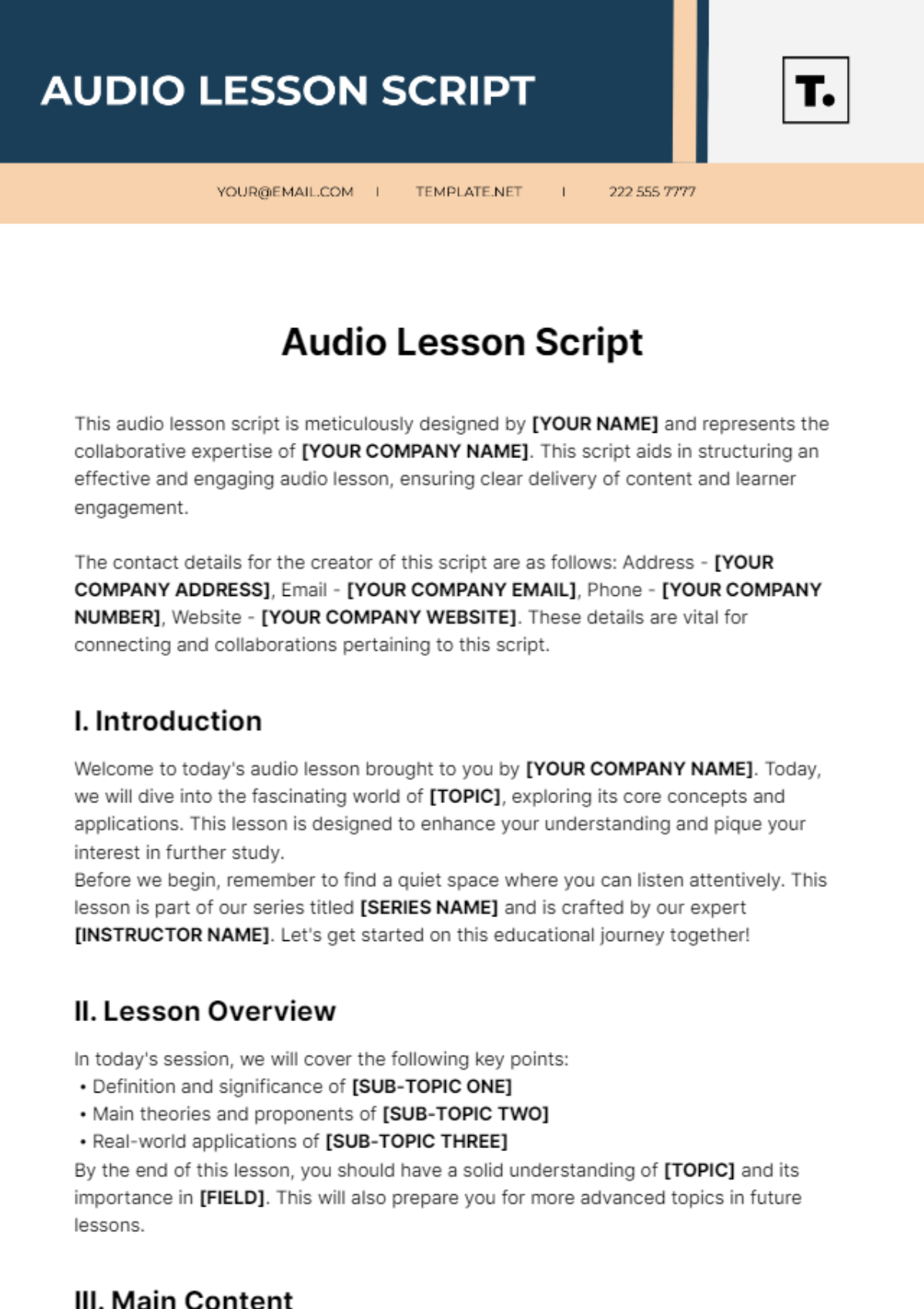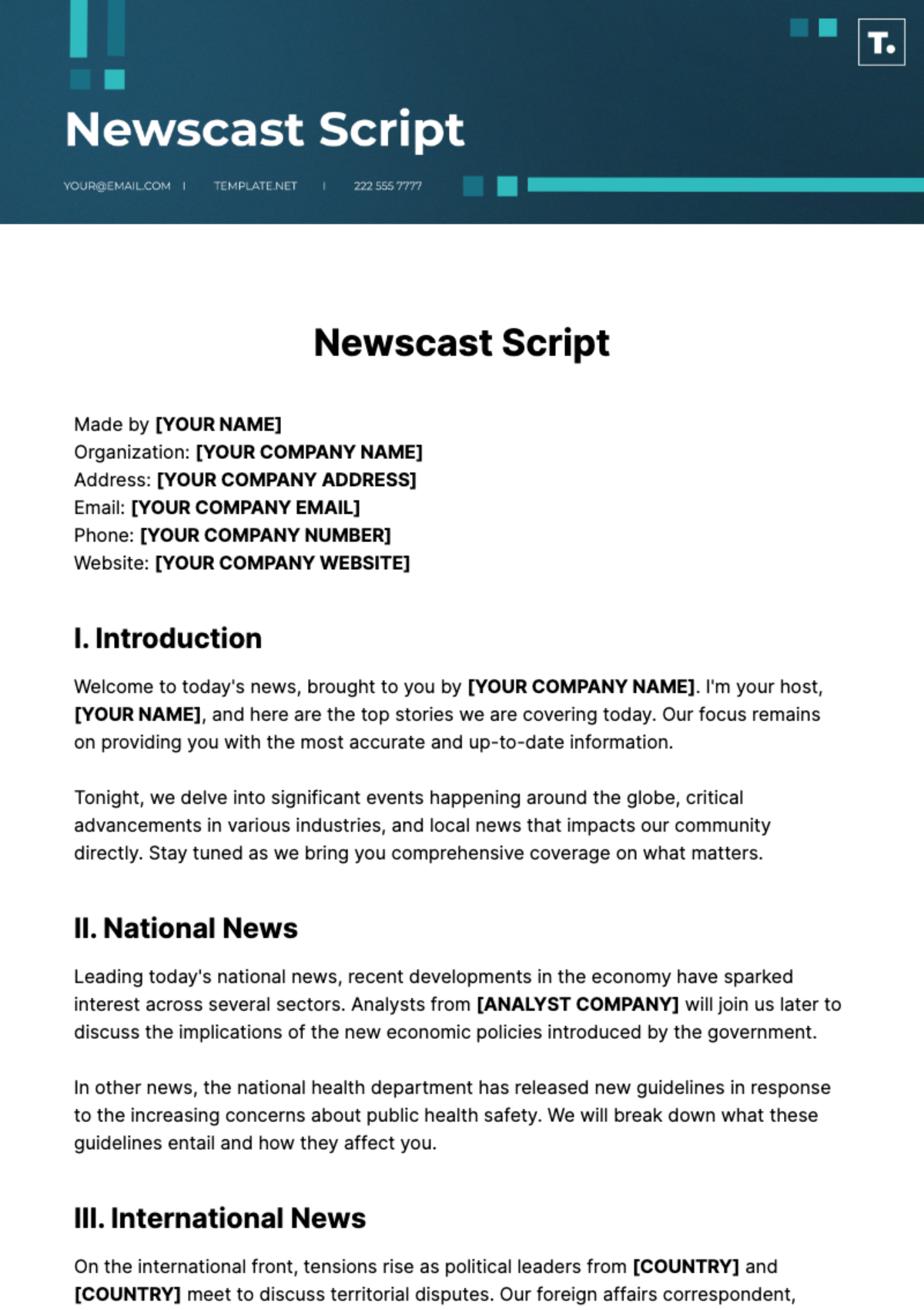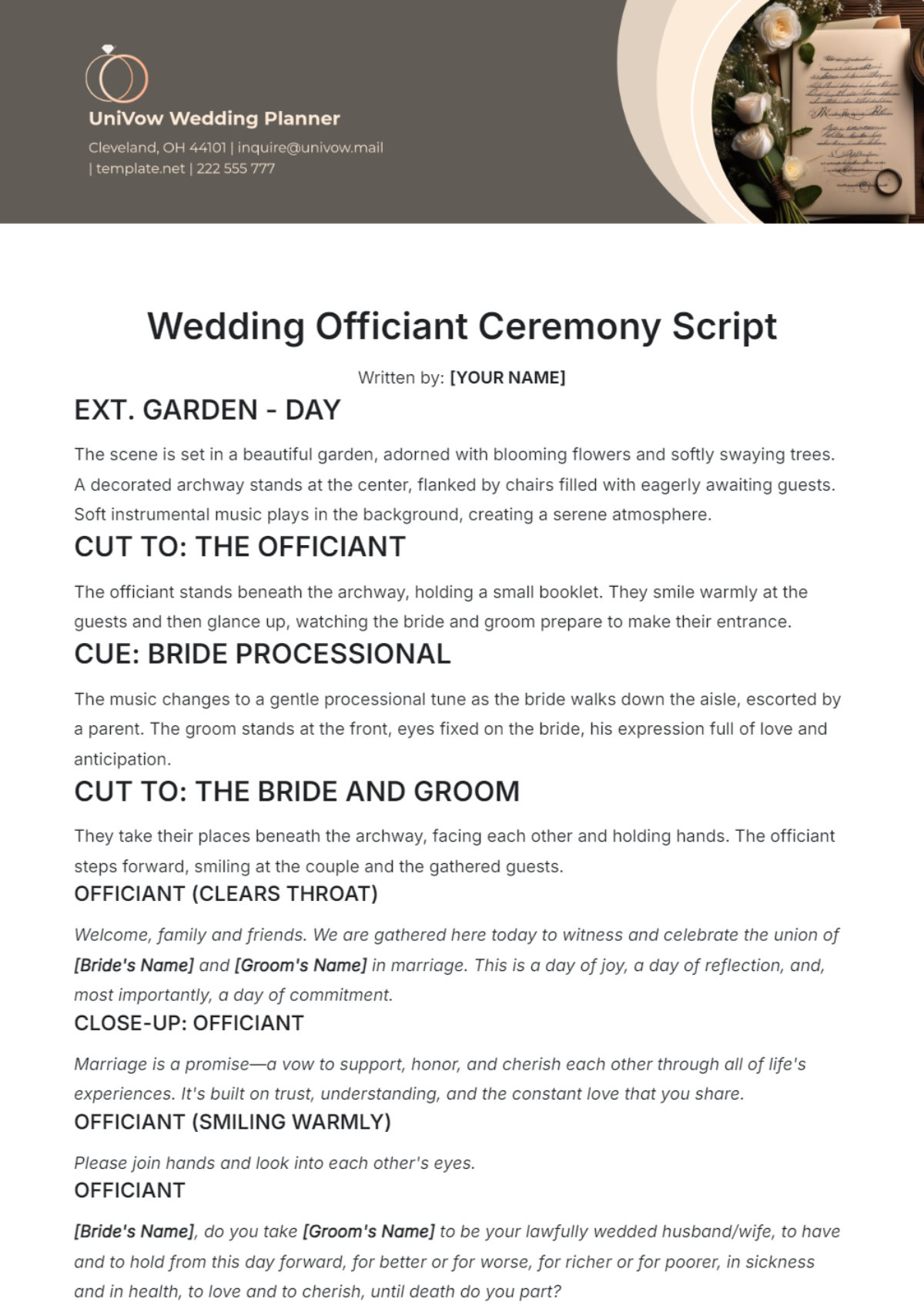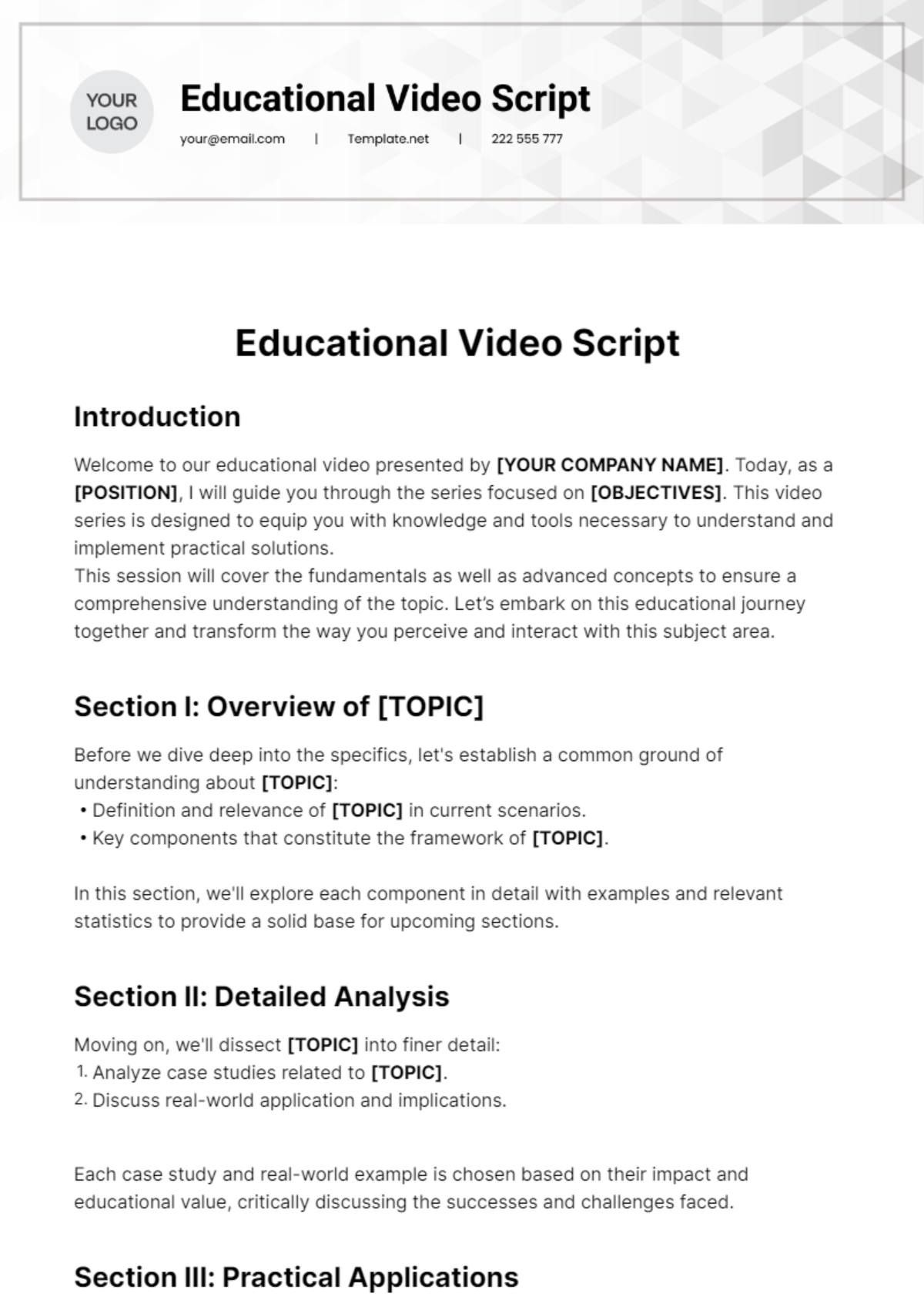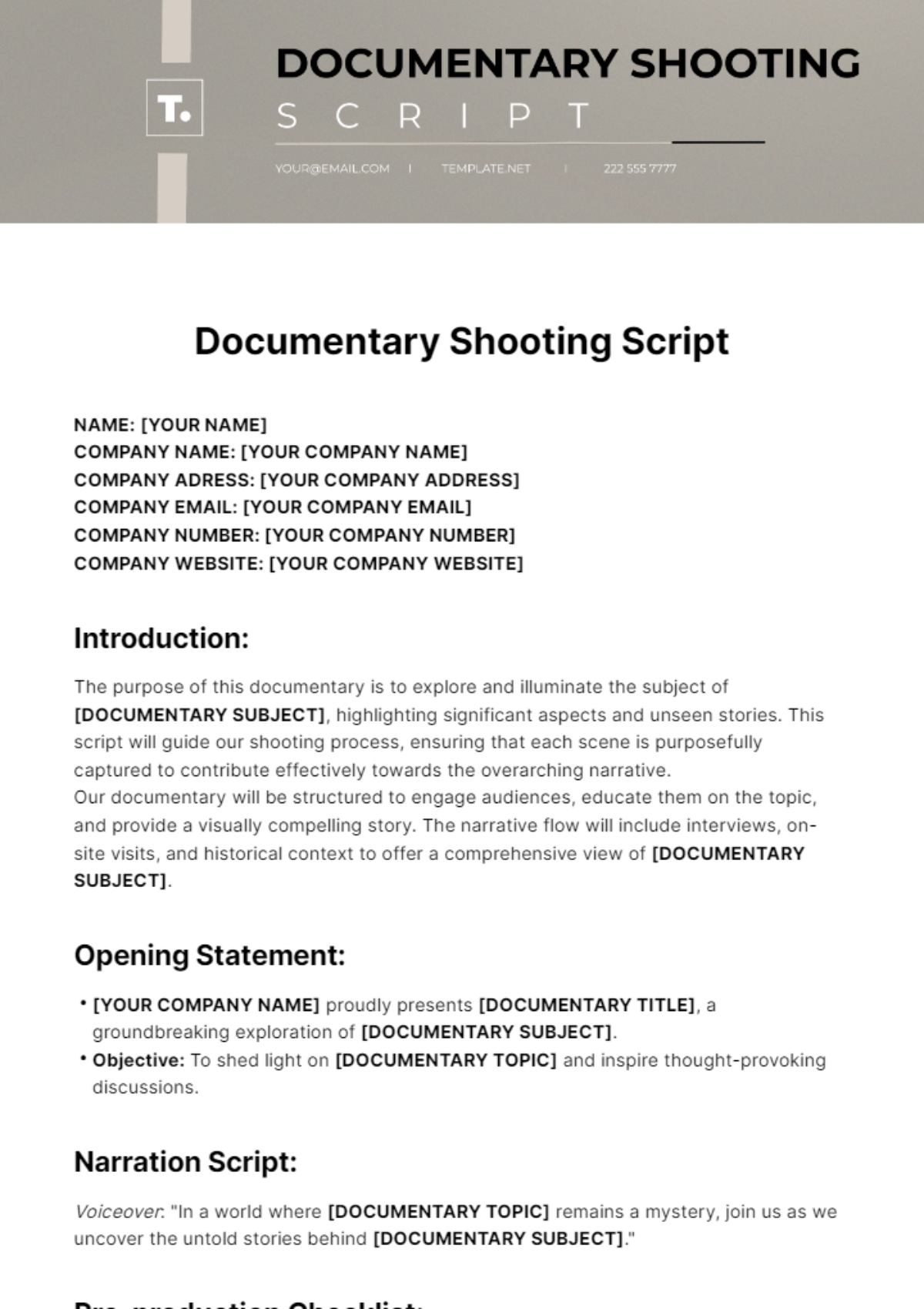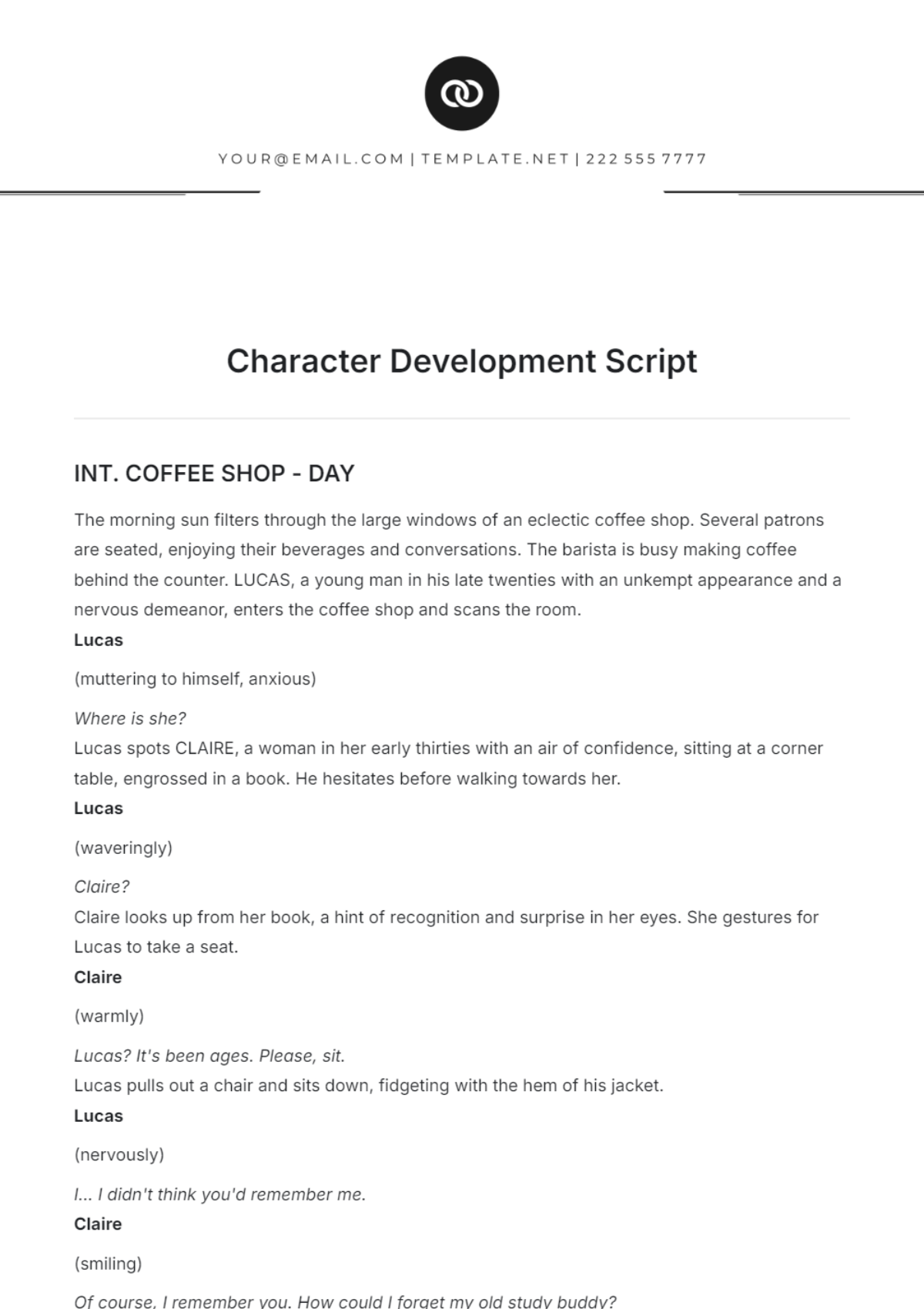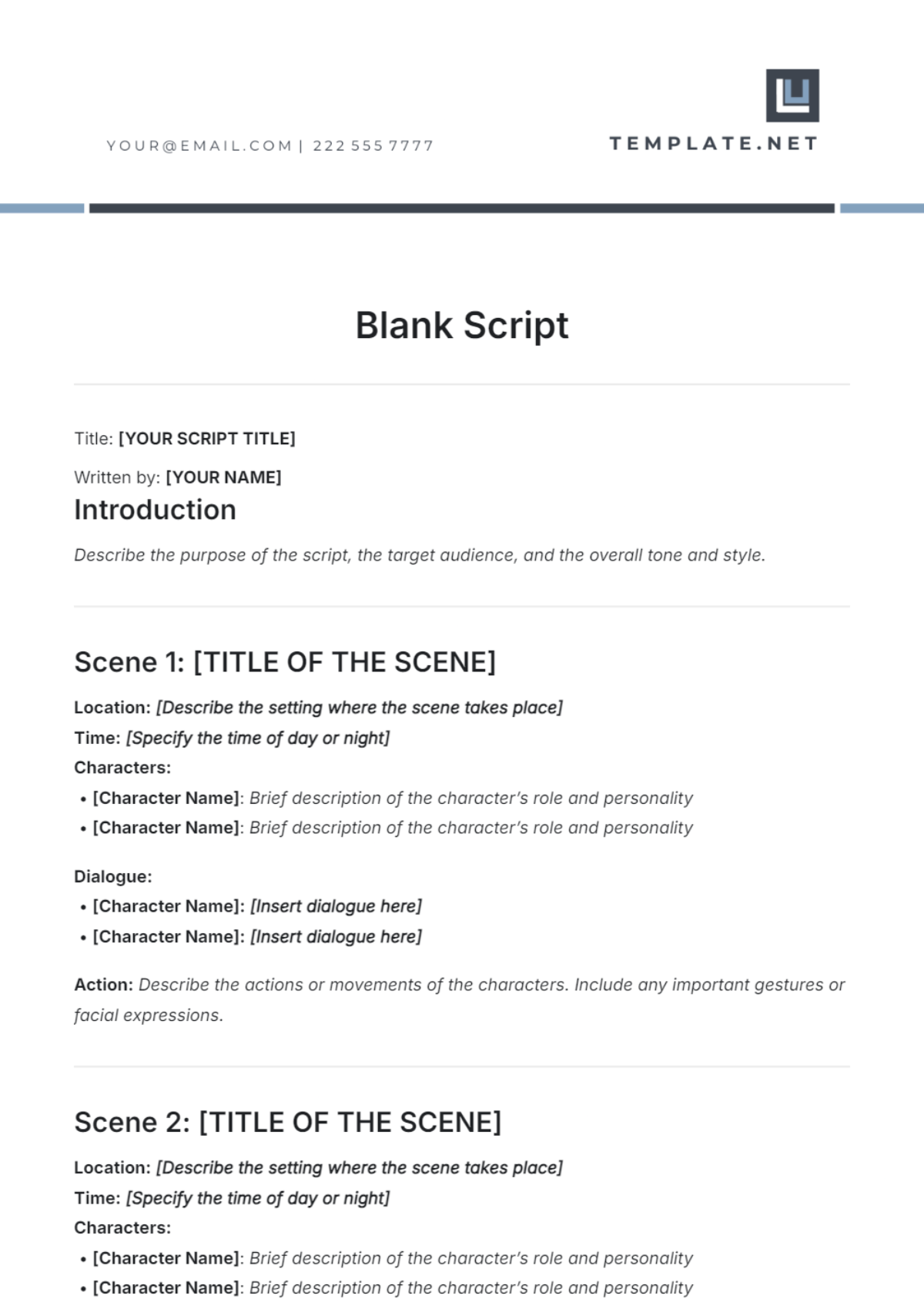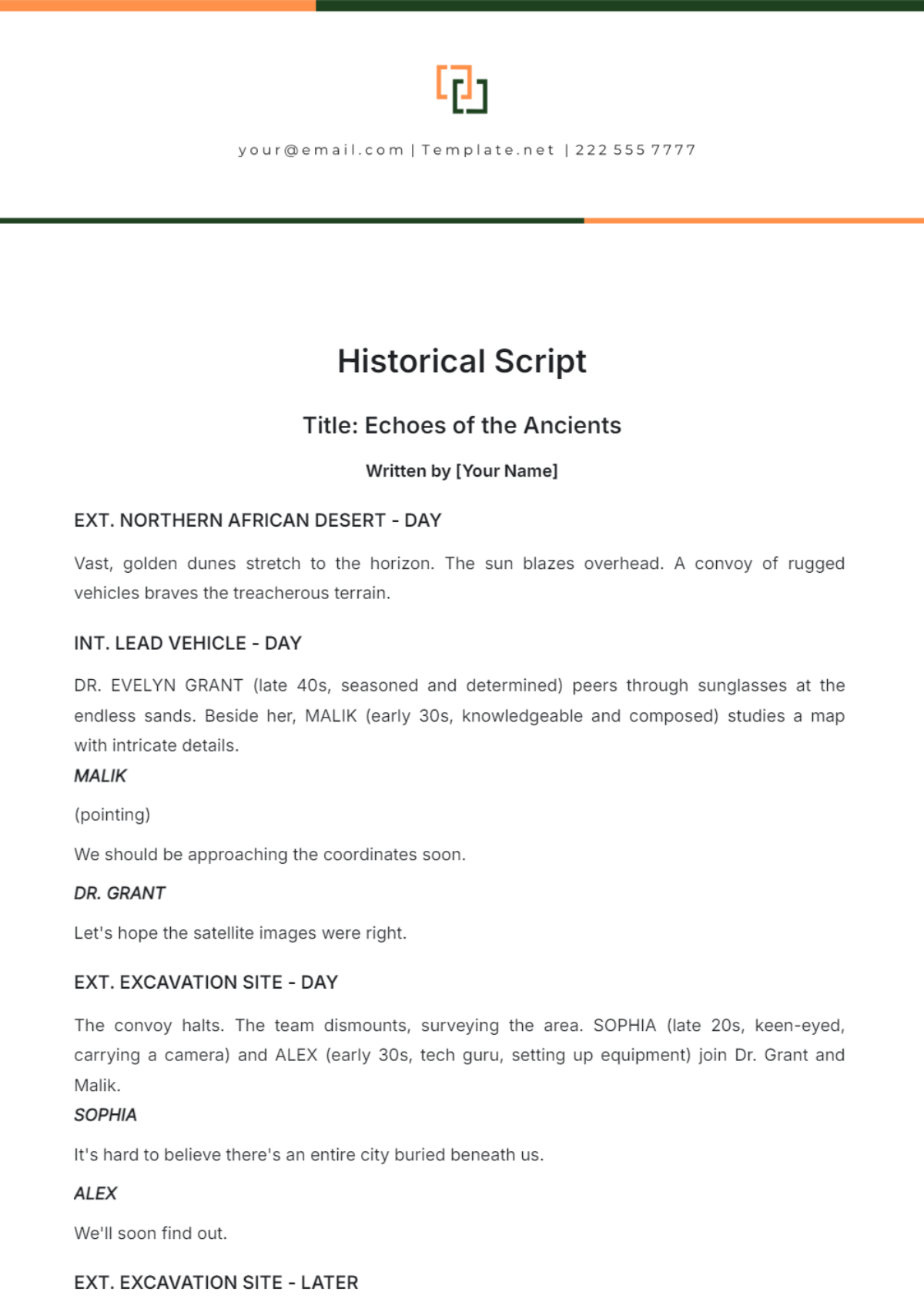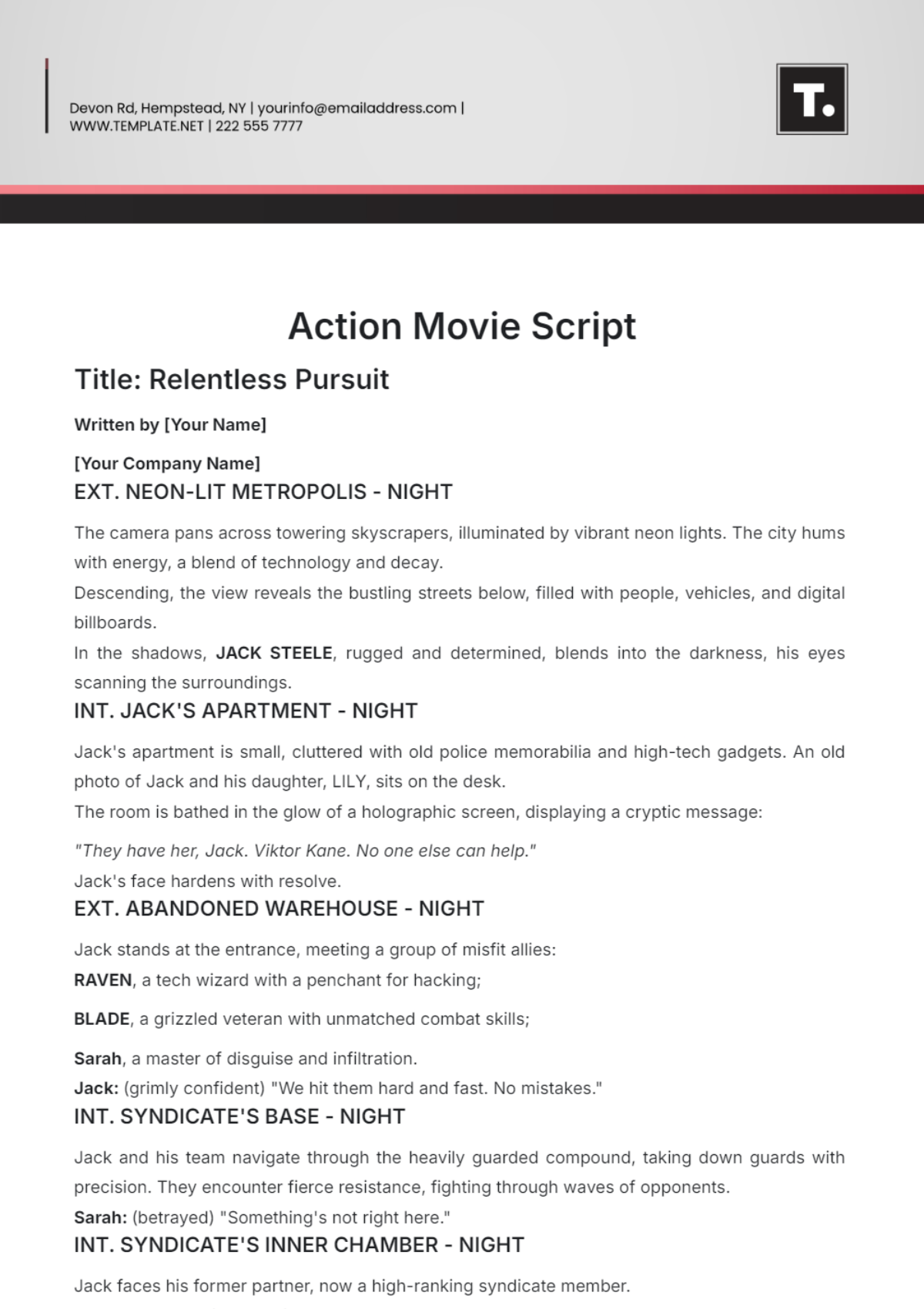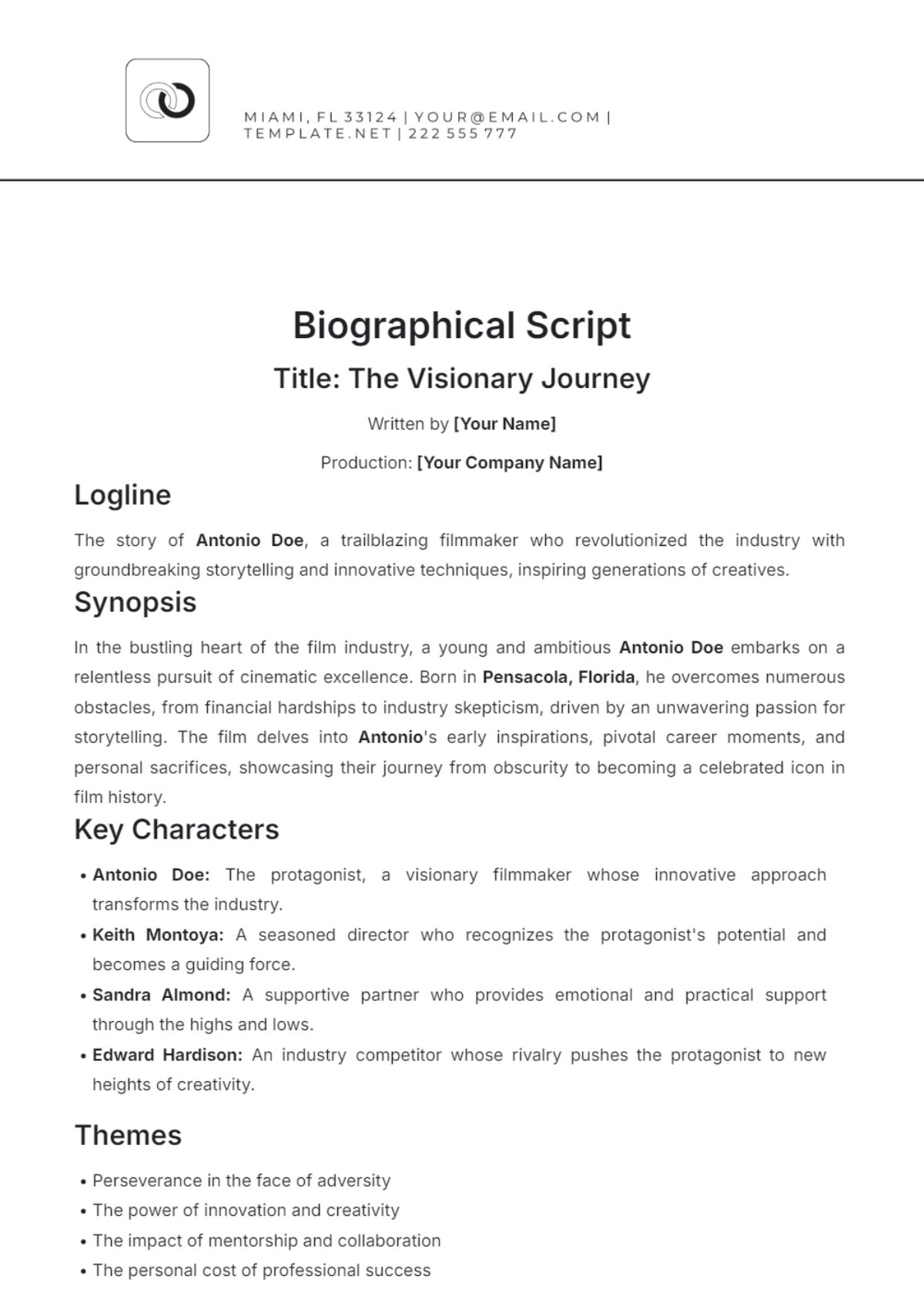Middle School Play Script
Made by [YOUR NAME]
Under the organization, [YOUR SCHOOL NAME]
Email: [YOUR SCHOOL EMAIL]
Phone: [YOUR SCHOOL NUMBER]
Website: [YOUR SCHOOL WEBSITE]
I. Introduction
In the world of Middle School Productions, a well-crafted script serves as the cornerstone of a successful theatrical performance. [YOUR NAME] is proud to present this comprehensive script template, tailored specifically for drama clubs and extracurricular theater programs. This template offers a structured framework to guide you through the process of creating a captivating play that entertains audiences and provides enriching learning experiences for students.
II. Play Overview
Concept Development
Before diving into the details of scriptwriting, it's essential to develop a clear understanding of the play's overall concept and theme. Begin by brainstorming ideas and themes that resonate with your target audience of [YOUR SCHOOL'S NAME] students. Consider the interests and abilities of your performers, as well as any curriculum or educational objectives you wish to address through the production.
Plot and Theme
Once you've established the foundation for your play, outline the key plot points, characters, and settings that will bring your vision to life on stage. Dive into the themes you wish to explore and how they will unfold throughout the narrative, engaging both the performers and the audience.
III. Character Development
Character Profiles
A compelling play hinges on well-developed characters that resonate with audiences and drive the narrative forward. Start by creating detailed character profiles for each major and minor role in your play. Include essential details such as age, personality traits, motivations, and relationships with other characters.
Character Arcs
Utilize these profiles as a reference point throughout the scriptwriting process to ensure consistency and depth in your character portrayals. Develop character arcs that allow for growth and change, enriching the overall storytelling experience.
IV. Dialogue and Scene Structure
Crafting Dialogue
Effective dialogue is the heart of any play, conveying emotion, driving plot progression, and capturing the audience's attention. When crafting dialogue for your script, strive for authenticity and naturalism, ensuring that each character's speech reflects their unique personality and perspective.
Scene Breakdown
Pay careful attention to scene structure and pacing, using [YOUR SCHOOL NAME]'s guidelines to create a cohesive flow that keeps audiences engaged from start to finish. Break down scenes into manageable chunks, focusing on transitions and dramatic tension.
V. Stage Directions and Technical Requirements
Stage Direction Clarity
In addition to dialogue and character interactions, stage directions play a crucial role in communicating the visual and technical aspects of your production. Use clear and concise language to describe movement, blocking, and key visual elements, providing [YOUR SCHOOL'S NAME] students with clear instructions for bringing the script to life on stage.
Technical Considerations
Consider any technical requirements, such as lighting, sound effects, or props, and incorporate them into your stage directions to ensure a seamless and polished production. Collaborate with technical teams to ensure smooth execution of these elements during rehearsals and performances.
VI. Rehearsal and Performance Tips
Rehearsal Schedule
As [YOUR NAME]'s script template nears completion, it's time to shift your focus to the rehearsal and performance phase of your production. Establish a rehearsal schedule that allows ample time for blocking, line memorization, and character development, while also providing opportunities for feedback and collaboration among cast and crew members.
Performance Preparation
Encourage students to embrace the creative process, take risks, and support one another as they work towards a common goal of staging a memorable and impactful performance. Provide guidance on performance techniques, stage presence, and audience interaction to ensure a polished and professional production.
VII. Conclusion
With the aid of this comprehensive script template, [YOUR SCHOOL'S NAME] drama club and theater program are well-equipped to embark on an exciting journey of creativity, collaboration, and artistic expression. Whether staging a classic drama, a contemporary comedy, or an original production, let this template serve as your guiding light as you bring the magic of theater to life on the stage.




